32 Questions to Ask on a College Visit
Students should feel free to ask questions during an information session or on tour.
Questions to Ask on a College Visit

Getty Images
Prospective students should conduct at least basic research to facilitate questions to ask during the information session or on tour, experts say.

Key Takeaways
- Before a campus visit, students should do basic research on the school.
- Students and their families have various opportunities to ask questions.
- No question is dumb.
College visits, whether in person or virtual, can help give prospective students a better feel of campus life.
Contrary to popular belief, however, students don’t need to have that “a-ha” moment when they eventually find the campus where they belong, says Thyra Briggs, vice president for admission and financial aid at Harvey Mudd College in California.
“I just don't think that happens for most students,” she says. “I don't want students to walk away from a visit where that didn't happen thinking, ‘Oh, this is not the place for me.’ This is a long-term relationship. It's not necessarily love at first sight. … In this age of instant gratification, I think it's an important thing to give a school a chance to affect you in a different way.”
For an in-person visit, families should prepare ahead of time by checking the weather and dressing comfortably as tours are mostly held outside.
"Leave plenty of time at an individual campus and allow yourself to enjoy the experience, be present in the moment and (don't) feel rushed because that could also skew your perception of things," says Bryan Gross, vice president for enrollment management at Hartwick College in New York.
It’s also important, experts say, to conduct at least basic research on the institution – even if it’s just looking at their social media accounts – to help facilitate questions to ask during the information session or on tour.
"We know that for some of you, this may be the first time you are going through this," Briggs says. "For others, it's a different student (going through the process) than the student you had who's older. So there’s no bad questions. ... I would hope that any college would welcome any question a student would ask.”
Here are 32 example questions, collected from college admissions and enrollment professions, that students don't always think to ask on college visits. These questions – edited for length or clarity – were provided by Briggs, Gross and Brian Lindeman, assistant vice president of admissions and financial aid at Macalester College in Minnesota.
Questions About Admissions
- Does this school consider demonstrated interest?
- Is there an opportunity for prospective students to sit in on a class to experience a real lecture?
- Are there options to receive a lunch or dinner pass at the dining hall to try the food?
Questions About Academics
- Where do students typically study?
- How does advising work?
- What are the academic strengths of this school?
- What opportunities are there for study abroad and exchange programs?
- If available, are these global programs directly run by this school – where faculty members travel with students – or are these study abroad programs outsourced to a third-party company?
- Are these study abroad experiences built into the tuition or are there additional fees to participate?
Questions About Financial Aid
- What is this school's average financial aid package?
- What is the average net cost when students enroll?
- What is the current level of funding with endowed scholarships – how much are donors contributing to scholarships?
- Do you offer merit aid ? If so, what are you looking for in a candidate?
Questions About Campus Housing and Community
- What are the housing options?
- What are the fee structures for these different options?
- Are students required to live on campus ?
- How does your campus define diversity, equity, inclusion and belonging?
Questions to Ask Your Tour Guide to Gauge Campus Life
- What surprised you about this school? What's something you didn't expect?
- What keeps you coming back to this school each year?
- Have we seen your favorite place on campus?
- What event on campus gets the biggest turnout every year?
- If you were struggling with an issue, would you know who to turn to? Who would that be?
Questions About Work and Research Opportunities
- What are the opportunities for undergraduate research on campus?
- How do those research opportunities give students valuable hands-on experiences that enhance their resumes?
- What are some specific ways this school helps students gain hands-on experience through internships ?
Questions About Student and Career Outcomes
- What is the retention rate from freshman to sophomore year?
- What is the five-year graduation rate?
- What is the job-attainment rate of graduates within six months of graduating?
- What percent of students are going on to graduate school ?
- What percent of students are intentionally taking time off post-graduation compared to those who are not able to find jobs?
- What size is the alumni network?
- How are alumni actively engaging with recent graduates to help connect them specifically to opportunities in their fields?
Searching for a college? Get our complete rankings of Best Colleges.
Unique College Campus Visits

Tags: colleges , education , campus life , college applications , students
Ask an Alum: Making the Most Out of College
You May Also Like
Protests threaten campus graduations.
Aneeta Mathur-Ashton May 6, 2024

Protesting on Campus: What to Know
Sarah Wood May 6, 2024

Lawmakers Ramp Up Response to Unrest
Aneeta Mathur-Ashton May 3, 2024

University Commencements Must Go On
Eric J. Gertler May 3, 2024

Where Astronauts Went to College
Cole Claybourn May 3, 2024

College Admitted Student Days
Jarek Rutz May 3, 2024

Universities, the Police and Protests
John J. Sloan III May 2, 2024

Biden Condemns Unrest on Campuses
Aneeta Mathur-Ashton May 2, 2024

How to Find a Mentor in College
Sarah Wood May 2, 2024

20 Beautiful College Campuses
Cole Claybourn May 1, 2024


- Online ACT Prep
- In-Person Test Prep
- Live! Online Classes
- College Counseling for Families
- Online SAT Prep
- Online Test Prep for Schools
- College & Career Readiness
- Request a Demo
- Testimonials
- Referral Program
- John Baylor
- About OnToCollege
- Meet the Team
- Tech Support
- LIVE! Online Help
- Free Resources
- Gear, Posters, & eBooks
- Newsletter Sign-up
- Leave Us a Review
40 Questions to Ask on a College Visit
Oct 2, 2023 | Articles , College Admissions , High School

Do you know what questions to ask on your college visit? Here’s a list of great questions whether you visit in person or virtually. Download our checklist to bring on your visit. Add questions of your own and ignore those that don’t apply to you. Ask what you need to make your best-fit college choice.

General College Information
- How many students attend the college?
- What is the four-year graduation rate of the students? Six-year?
- What percent of freshmen return for their sophomore year?
- What graduate programs are offered?
Housing and Food
- What percent of students live on campus? What about upperclassmen?
- What types of dorms or housing options does the college provide?
- What percent of students have cars on campus?
- How much does it cost to have a car on campus? (Parking permits, etc.)
- What meal plans are available?
- What other food options are available on or near campus?
- Where is the closest grocery store to campus?
Student Engagement
- What activities are offered for students?
- How regularly are sporting events attended by students?
- What opportunities in the arts and theater are offered? Do students regularly attend these events?
- What clubs or activities are offered for students?
- Are intramural sports offered?
- What do students do for fun on campus? In the community?
- Is there Greek Life on campus? What percent of students are involved?
- What majors are offered?
- How are high school AP tests credited at the school?
- What is the student-to-faculty ratio?
- How many credits does the average student take each semester?
- Are first-year classes taught by professors or TAs?
- What is the average size of introductory classes?
- What is the average size of upper-level classes for my major?
- How much access do students have to professors?
Academic Opportunities
- Are there opportunities to study abroad?
- Are there learning communities or an honors program?
- What academic support is offered on campus?
- Are there career counseling resources offered?
- What internships or summer research opportunities are offered?
Campus and City Life
- How safe is campus? What security is in place?
- How safe is the community around campus?
- How busy is the campus? How noisy?
- How integrated is the campus with the city and surrounding community?
- What opportunities are there to get involved and volunteer in the community?
- Financial Aid & Scholarships
- What is the total cost to attend?
- What scholarships are available to students? Which would I be eligible for?
- What is the average student debt after graduation?
- What percent of students have jobs on campus? Off-campus?
Want more personalized support as you explore colleges and prepare your applications? Learn about OnToCollege College Counseling options .
- Applications & Interviews
- College Admissions
- Essays & Recommendation Letters
- High School
- Middle School
- Standardized Tests


202 Powerful Questions to Ask on a College Tour
by Melissa Brock | Jul 27, 2020 | Ask the admission office | 0 comments

I loved it when families came for college tours. They were excited, happy and sometimes even nervous. However, some families weren’t sure what questions to ask because everything (everything!) was new to them.
I compiled a list of must-ask questions to ask on a college tour for admission counselors, financial aid professionals, professors, coaches and more. You may think of others that pertain directly to your child’s situation, but this should give you a great start!
By the way, check out this post if you’re curious about learning how to set up a college visit .
Student Tour Guide Questions
Admission counselor questions, admission requirements and process, future visit details, academic details, demographics, social life and other activities, financial aid professional questions, faculty member questions, coach questions, get your questions answered.
The student tour guide offers the most candid look at what a college is like. Spend as much time as you can with your child and the tour guide and make sure your child asks questions, even if the tour guide probably isn’t going to be your child’s best friend. Yes, the student is groomed to give canned responses to some questions but talking to the tour guide is the best way to get a feel for a college.
- What’s your favorite thing about this college?
- What’s your least favorite thing about the college you attend?
- Where might my child spend a lot of time if he/she is a student here?
- Why did you choose this college?
- What are the students like?
- Which residence hall is your favorite? Where did you live your first year?
- Where do you live now? Why did you choose to live there?
- What is the food like?
- What is your major?
- Is this a suitcase college? (Do people go home a lot on the weekends?)
- What activities does the college have available for students?
- Is it easy to get an internship here? Have you had an internship?
- How available are professors?
- How does the college handle communication?
- Have you found it difficult to handle the costs of college?
- What are your plans for after graduation? Do you plan to go to graduate school? Get a job?
- Is it easy to get a work-study job on campus? Why or why not?
- Where do first-year students typically get assigned for work-study? Can they request a work-study job?
- How have online classes gone due to COVID-19? Has that been a seamless transition?
- Are the classes rigorous? Have you found them manageable?
- How do you manage classes and athletics? (If the student is an athlete and your child is a prospective athlete as well.)
- How many tours did you go on before you chose this college?
- Is this college far away from your hometown? How do you manage going home during breaks?
- Is it easy to get involved in extracurricular activities?
- Was it easy or difficult for you to get accepted into this college? How many other colleges did you apply to?
- What do you do for fun and what is the social scene like?
- What was the most surprising and difficult thing about adjusting to college life?

You can call an admission counselor an “admission counselor” or an “admissions counselor.” What does an admissions counselor do ? Check it out before you go on your visit! Generally, this is the person who will help you throughout the college search process. Your child will be assigned an admission counselor based on geography. You can search a map of the United States on any college’s website and find your child’s admission counselor. Here are some great questions to ask your child’s admission counselor. (I spent 12 years in college admission and I loved it when families asked me these questions!)
- What’s the application process?
- What is the admission process, from start to finish, and what should my child expect after an application?
- What ACT/SAT scores does my child need to attend your college? Is it optional?
- Do you superscore test results (take the best score of each subject test on multiple ACT or SAT dates)?
- Can my child self-report my standardized test scores?
- Should my child aim for a certain grade point average? What are the requirements?
- Does my child need to submit an essay or letters of recommendation? If so, what are the requirements?
- Are there any other admission requirements we need to be aware of? What types of supporting materials does my child need to provide?
- Does my child need to do an interview with an alumnus or college staff member to be admitted?
- Are there different admission requirements for various departments or majors?
- How can my child make his or her application stand out?
- What are the most important admission factors at your college or university?
- Do you accept the Common Application, the Coalition Application or the Universal College Application or do you have your own application?
- What types of deadlines do you have for your applications?
- Do you charge an application fee? How do we pay it?
- Can we get a waiver for the application fee if the fee is a hardship for our family?
- Do you have an applicant portal my child will need to use?
- What are your recommendations for teacher evaluations, if required?
- What does your ideal applicant look like?
- How do you look at extracurricular activities and work experience in the admission process?
- If my child applies early decision or early action to another college or university, can he or she apply to another college?
- Do you defer admission to some students? If so, why, and what can my child do to be admitted?
- Can my child defer admission once admitted?
- Is the rigor of my high school taken into consideration when my child applies?
- Who will read my child’s application?
- Will it help my child to take advanced, accelerated or honors courses?
- Can my child add/remove something from his application once it’s submitted?
- How does my child track the status of her application?
- Does your college ever rescind an admission offer?
- If my child is rejected Early Decision, can he apply Regular Decision?
- Does my child need to submit mid-year reports of her grades?
- Are my child’s chances for admission to your university’s graduate school greater if she attends your university as an undergraduate?
- How should my child submit transcripts from any college courses?
- Are admission requirements different if my child is homeschooled?
- Will my child’s financial aid award be different if she applies for admission under Early Decision, Early Action, etc.?
- When do application decisions become available?
- Is there a maximum number of students admitted from a particular country, region or school?
- How should my child submit standardized test scores?
- How do you determine which credits transfer?
- Is admission competitive? How competitive?

You may want to come back! In that case, check with the admission counselor you’re talking to so you can find out which options are best. Check out my ultimate guide to Here are few questions you could ask:
- Which visit days should my child attend throughout the year?
- How do we arrange an on-campus overnight visit?
- What’s the best way to arrange future visits in general?
- What does a visit schedule look like if my child chooses to arrange future visits?
- In your opinion, is it best to do a group visit day if we choose to visit again or is it best to do a personal campus visit?
- Do you have competitive academic scholarships my child can interview for (and come back to campus another time)?

Why not ask the admission office about academics? Admission counselors can offer a candid overview of academics at the college they’re working at because what do they do all day long? They talk to current students who work in the admission office (and also hear their complaints and what they celebrate).
- Do professors have an open-door policy? How accessible are they?
- Are teaching assistants or professors the ones who teach the classes?
- What is the average class size?
- What is the student to faculty ratio?
- Can you tell me about the [insert name] major? What are your most popular majors and classes?
- How are classes selected?
- Are there required first-year classes?
- My child’s favorite subject in school is [insert favorite subject]. How can that translate to a major here?
- How rigorous are classes here?
- Tell me about academic support services here.
- Does your college provide services if my child has a disability?
- What is your graduation rate?
- How many students go on to graduate school or become employed after graduation?
- How many students get jobs in their majors or a related field?
- What types of internships are available for students?
- Is it possible to do research as an undergraduate student?
- Is your school on the semester or quarter system?
- Does your school offer pre-professional majors?
- Are tutors available?

- What types of clubs and organizations can my child get involved in?
- What are the most popular clubs and organizations?
- What’s the social life like on campus? What do students do for extracurricular activities?
- What would you change about this college or university?
- Do students usually attend sporting events, theatre events or more?
- Is it possible for my child to start his or her own club or organization? What is the process to do that?
- How many students study abroad? Is it a popular thing to do? How is study abroad structured here?
- Is it easy to manage a collegiate athletic career and academics? How do coaches approach academics and athletics here?
- What security measures are in place at your institution?
- Is on-campus housing guaranteed?
- Is my child required to live on campus?
- How does the meal system work?
- Is it easy to find a student job on or near campus?
- How is housing assigned?
- Can my child live on campus during school breaks?
- How safe is the campus and the surrounding neighborhood?
- What is the percentage of students of color on campus?
- What is the percentage of students who live on campus?
- Can you tell me the male-to-female ratio on campus?
- How does parking on campus work?
- Where are students who go to your school from?
- How does your college or university accommodate students with food allergies?
- What role do parents play in your community?
- What is your freshman retention rate?

You might want to meet with a financial aid professional as well — and that’s a great move. However, if you can’t get an appointment with someone in the financial aid office, admission counselors are well-versed in most financial aid topics and should be able to walk you through an award letter or answer basic questions about scholarships and loans. Here are some questions you may want to ask:
- What is the tuition, room, board and fees at this school?
- How much does tuition increase each year? Do scholarships increase to match the change?
- What scholarships can my child qualify for? How does my child qualify for them?
- Are there any merit-based scholarships available at your school?
- Can my child receive grants? If so, what are the requirements?
- How do loans work and how should we apply for them?
- Can you explain in detail how a financial aid award is set up?
- What amount will my child receive, using your school’s net price calculator or a financial aid estimator?
- What are the interview or audition requirements for certain scholarships?
- Can my child apply for talent-based scholarships?
- What will happen if our family’s financial aid situation changes while my child is at your school?
- Will my child qualify for work-study? How does work-study work here?
- Does my child need to report outside scholarships? Will merit-based scholarships be “taken away” if my child receives a large outside scholarship?
- Where should we send checks for outside scholarships?
- Do we need to complete a CSS Profile?
- How will we know if the FAFSA has been submitted correctly?
- When will my child receive the financial aid award?
- What is the deadline for applying for financial aid?
- My child is undocumented. Is my child still eligible for financial aid?
- How does financial aid work if my child studies abroad?
- Can veterans or children of veterans receive financial aid at your school?
- Can we apply for financial aid in future years if we do not apply the first year?
- Will you help me file the FAFSA in person?
- What kind of need-based aid can my child get?
- How is work-study awarded?
- How will the financial aid office help our family break down the costs?
- What does the average student receive in financial aid from your school?
- Are there other extra expenses we’ll need to be prepared for, like activity fees, biology lab fees, etc.? Can you give us a list of those additional expenses?

Many colleges and universities will grant you time with professors — you just have to ask. It can be intimidating for your student to meet with a faculty member but it’s well worth it! After all, your student may have that professor for classes. A professor can change the trajectory of a your student’s career and life. Here are some questions you and your child can ask:
- Which classes do you teach?
- What is your favorite class to teach? Why?
- Why do you teach here?
- What is your teaching style?
- How often do terminal degreed professors teach the classes?
- What are your top expectations at the beginning of any semester?
- Do you help students with connections for internships and jobs after graduation?
- Are undergraduates able to get research opportunities?
- How do you measure success in your classroom?
- What does a typical syllabus look like in one of your classes?
- How does advising work? What’s the process to put together a student schedule?
- When are your office hours? Is it easy for students to get their questions answered?
- What is your average class size? For introductory classes? For advanced classes?
- What are your most successful students doing now?
- How do you communicate with students?
- Do you put an emphasis on interactive or group work or put an emphasis on lectures?
- How do you choose the textbooks a student will use during the semester?
- Do you consider yourself to be approachable?
- What should my child do if he or she is having trouble in your class?
- Do you have teaching assistants (TAs)?
- Are there any supplemental instruction (SI) sessions my student can go to during any given semester?
- How have you handled online learning during COVID-19?
- How much time do your students spend studying and completing assignments during the week?
- Are your classes reading and writing intensive ?
- What types of issues do students bring to you during office hours?
- Is there a capstone project or internship requirement for your program?
- What does a typical path to graduation look like? What exact classes are required?
- How long does it take the average student to graduate? Four years? Five years or more?
- What is the academic community like in your department or program?
- What resources are available to me?
- Is service learning or similar opportunities for hands-on learning a priority in your classes?
- Do you help students determine their career path or calling?
- Do your students make connections between their academic studies and activities outside of class? Can you give us an example?
- How do you work with students who choose to study abroad? Is there a best time during the academic program?
- What other majors and minors do students usually combine with this major?
- Do you do any other research or other projects that can affect what you teach here?
- What are students surprised to learn when they’re in your class?
- What do you do when students realize your major isn’t a fit?

You want to be sure that a college is a good fit for your child athletically if your child is an athlete — but make sure it’s a great fit academically and socially as well. Note that you’ll want to ask the admission office questions about grades, admission, SAT, ACT, academic scholarships, etc. — coaches should not answer admission questions.
A quick tip: Don’t bring up athletic scholarships right away — a coach wants you to demonstrate a team commitment first. Here are some questions you and your child may want to ask a coach.
- Why do you coach? What is your coaching philosophy?
- What are the holes in your program that my child can help fulfill?
- How do you recruit?
- What are you looking for in the right recruit?
- Can you describe your program’s values?
- What does a typical day look like for a player during the season?
- How about the off-season program? What are the expectations?
- How do you encourage your players academically?
- What are the academic requirements for your program?
- What do your players do during their free time?
- Can you tell me your team’s total GPA and graduation rate?
- Do the players typically live together on campus?
- Is it easy for players to catch up after missed class time for games and meets? How do they usually do that?
- My child wants to major in X. Is it possible to major in this and still play for your program?
- How much of an impact do you see my child making on the team right away? Later on?
- What does my child need to do to be evaluated by your staff?
- Can you tell me more about your assistant coaches? What are their philosophies?
- When does your coaching contract end? Do you see yourself here another four years?
- How would you describe the team chemistry?
- What are the current strengths and weaknesses of your team?

I’ve included a lot of questions on this list! You’ll keep yourself pretty busy if you ask every single one of these questions on your college visit. However, note a few, write them down, take this link with you on a visit. Maybe this list will also inspire your own questions on your visit!
Submit a Comment Cancel reply
Your email address will not be published. Required fields are marked *
Save my name, email, and website in this browser for the next time I comment.
Recent Posts
- Debt-Free College Dream: How One Family Earned Thousands of Dollars in Scholarships and Transformed Their Kids’ Futures
- 3 Degrees to Pursue to Achieve Financial Stability
- How to Start a Dog Walking Business to Pay for College
- What Does an Admissions Counselor Do? Demystifying the Role
- Best College Towns for Rental Properties: The List May Surprise You
- Ask the admission office (65)
- Build relationships (14)
- College Money Tips (16)
- Financial aid and scholarships (24)
Pin It on Pinterest

- {{children.title}} {{currentYear}} {{children.title}}
{{parent.cta_data.text}}
- Manage Account
- GET STARTED
Questions to Ask Admissions on a College Campus Visit
By Brian O'Connell
July 2, 2019
Taking your high school student on a college tour is a rite of passage for both the student and the parent. But, too often it doesn’t deliver maximum impact on the family’s college experience because many parents aren’t asking the right questions.
Why not? Several factors affect the gathering of information during the campus tour . Sometimes, tour guides – who are almost always students – don’t possess comprehensive knowledge on important issues like financial aid or the intricacies of the college’s admissions policy.
Or even more often, parents and students are told they’re free to ask any questions they want, from a broad selection of college officials, but neglect to do so. The parents may feel like they don’t have the time to break off for an individual question and answer session. Sometimes, the parents assume they’ll get the information in the tour package or later over the phone with a college advisor.
Additionally, sometimes parents don’t ask the right questions because they don’t know the right questions to ask.
Parents also feel they can get their questions answered , either by word of mouth from other parents whose own children have attended the college or via the college’s web site or social media presence.
Those are decent sources of information, as is a call to the college for a question on tuition, campus life or admissions. But not asking the right questions of the right college administrator while on a campus tour seems like an unforced error for parents and students.
Here’s a fix for that.
Seven Admissions Questions to Ask When You’re on a Campus Visit
Don’t let good information gathering opportunities slip through your fingers, especially on all-important college admissions queries . Be sure to ask these admissions questions during your next college visit, and pave the way for a smooth transition from high school life to college life for your son or daughter.
Can I get a hold of a college admissions officer today while I’m on campus?
Right out of the gate, this should be your first question on a college tour – ask it right away as you and your student arrive for the visit.
Most colleges will make administrators available to some extent during a campus visit, but since college tours are scheduled so frequently over the summer months, there are no guarantees.
Also, as so many college admissions staff may be away on vacation or already booked during the summer months, reality dictates that you ask upfront who’s available from college admissions when you arrive for a college tour – and how, where and when you can find that administrator.
What qualities do you look for in new students?
On this query, a campus tour guide may give you a boilerplate answer straight from the training seminar he or she took to become a tour guide. So unfortunately, it’s a question you might have to ask several times of different people to get a straight answer.
Yet it’s worth the effort.
Stop by the student life and/or college admissions office and ask the question – you’ll want to know what makes students at a given school unique and attractive as admissions candidates.
It might save you from sending your daughter or son to the wrong college and help you steer your child to the right college.
How many new students wind up transferring to another college by their sophomore year?
Ask the college admissions office how many freshman students don’t return for their second semester of their freshman year or for their sophomore year. Also, ask a junior or senior student what kept them coming back to campus during their later college years.
Students leave a college for plenty of reasons. They can’t afford it, they don’t believe college is right for them, or their college is failing them in key areas like academic support. A robust retention rate is a sign that the college knows what’s it’s doing and will keep your son or daughter engaged for four years.
That’s not always easy. According to U.S. News & World Report , one-third of freshman students don’t return to the same college the next academic year.
You’ll want to know your college’s freshman “leave” rate and an admission’s staffer should have one for you while you’re on campus.
The college might report their retention rate, which is the percentage of first-time, full-time freshmen who return for their sophomore year. Subtract the retention rate from 100% to determine what percentage of freshmen leave by the sophomore year. The top 100 national universities have a retention rate of 89% or more and the top 100 liberal arts colleges have a retention rate of 84% or more.
Are there good work-study opportunities on campus?
Any incoming college student will appreciate a few extra bucks every week and a part-time work-study job can fit the bill.
Consequently, asking early about work-study job opportunities can put you at the front of the line for quality part-time work at a decent per-hour salary (at least for an 18-year old college student). A tour guide or student employment office staffer should point you in the right direction.
Make sure you’ve filled out the Free Application for Federal Student Aid (FAFSA) first and ask if the college can place your student in a work-study job in his or her field of study.
Are there ongoing career consulting opportunities on campus?
Yes, graduation is more than four years away (more if your child moves on to graduate school) but it’s never too early to find out the quality of a given college’s career services program.
Parents and students who want that information should focus on several metrics of the college’s job placement performance:
- The track record of a school’s professional job placement office
- The track record of the college’s job placement efforts in the student’s major/vocation
- The availability of career fairs on campus
Also consider the ability to connect with alumni through local and regional professional organizations, which can lead directly to good job opportunities for graduates.
Since the ultimate goal of any campus visit is to choose a college that will train your child for a professional career with a good job right out of school, all of the above should be on your list of career questions on campus tour day.
Does the college have a favorable bias toward early admissions candidates?
Most colleges and universities offer at least two forms of admissions acceptance: early admissions and regular admissions.
Each has its advantages and disadvantages and parents who understand how a particular college prefers to accept students for admissions has some leverage other parents don’t.
For instance, if the word from an admissions college administrator, or even from “in the know” current students, says that their college likes to lock in early admissions candidates and is less enamored of regular admissions candidates, applying early might improve the raw odds of being accepted.
But, be sure you understand the difference between early decision and early action applications. With an early decision application, the student commits to enroll if admitted early. An early decision application is binding, while an early action application is not.
Consequently, asking about the percentage of incoming freshman who were accepted as early admission or regular admission candidates can tilt the admissions odds in your favor.
That alone makes it a question worth asking.
What level of student support should we expect on campus?
Different colleges have different levels of support for students, and you’ll want to know where your son or daughter stand if they need support on a wide range of student academic and life issues.
How will my child work with an academic advisor? Who can steer my student into a good “study abroad” program?” What is my child gets sick or suffers from a stress or anxiety issue at your college? Who can we turn to and what services do you offer students for general academic and life issues at your college or university?
Those questions and more deserve an answer if you’re going to spend potentially tens of thousands of dollars annually to place your child at a specific college.
A candid discussion with an admissions representative can get you the information on student services that you need.
A final bit of advice for anxious parents of college-bound students:
Don’t ask all the questions.
Give your student the space they need to ask questions of importance to them. At the end of the campus tour, get lost, so your child can ask a few questions without you breathing over their shoulder.
Related Articles

Everything you Need to Know About the Federal Direct PLUS Loan

4 Clients Who Can Benefit from Private College 529 Plan

Private College 529 and college savings plans: A perfect pair

How Much Money Can You Get from the FAFSA?
SPONSOR CENTER
A good place to start:
See the best 529 plans, personalized for you

Unlock Printing
Already have an account? Log in
University of Notre Dame
Undergraduate Admissions
Tips from Counselors
- Home ›
- Apply ›
- Tips from Counselors ›
Tips from a Counselor: Questions to Ask During Your College Visit
Published: May 15, 2023
Author: Emily LaPlaca
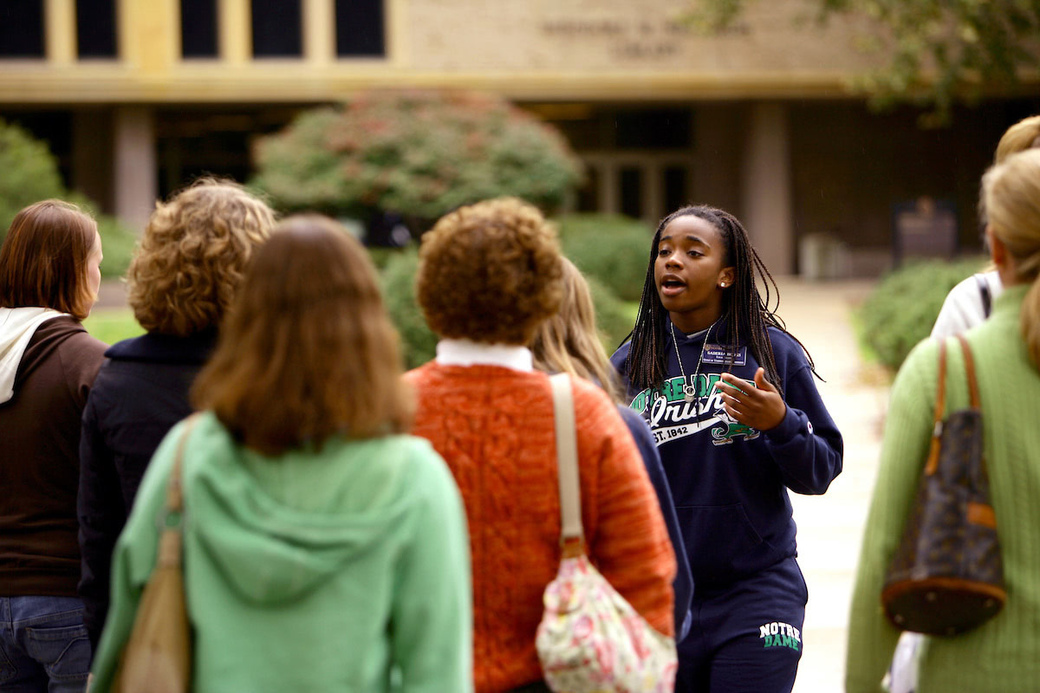
As campuses across the country continue to reopen to visitors and prospective students, your questions will likely shift from “Can I finally visit?” to “What should I ask during my visit?”
I certainly remember my own college search and not yet knowing exactly what questions to ask. Here are a few pieces of advice to keep in mind when preparing for a visit to college campuses.
Organize Your Questions
The first step in figuring out which questions to ask is to first discern the most important criteria you are looking for in a university or college.
If, for example, the most important considerations for your college education are the availability of financial aid, a strong undergraduate program in business, and a residential environment, then it probably does not help much if your first question is about meal plans and campus dining. While this may seem obvious, it can be tempting to just ask the first question that pops in your head.
I suggest going in with a thoughtful list of questions that you plan to ask at each university you visit, whether in person or online.
Having a core list of questions will give you a clearer sense of how that university fits into your primary goals and hopes for college. It will also allow you to more directly compare universities on these key criteria, especially if you (like me!) love lists, spreadsheets, or color coding. You will have your own system of organizing your college research, but having a list of criteria that you are diving into at each institution will allow you to more directly compare and contrast, regardless of your method of taking notes.
Do Your Research
Before visiting a campus in person, look at your list of questions and see whether you can find answers to any of them prior to an information session or tour.
It is often as easy as conducting a quick Google search. For example, searching “Notre Dame + test-optional policy” or “Notre Dame + Greek life” will give you quick answers to questions that you will not have to ask in person when you visit.
This will free up time to talk about topics in person that may be harder to find information about online.
In case you’re wondering, Notre Dame continues to be test-optional for the 2024 application cycle, and we do not have Greek fraternities or sororities . And with that, I’ve freed up your list in order to focus on other topics!
Be Specific
There are certainly broad questions that may be important to ask during your college search, such as, “What sets your university apart from other universities of a similar caliber?” or “What do students spend most of their time doing at your university?”
However, the more specific you can make your question, the more helpful it may be. Often, the admissions counselor who is hosting your information session may answer your specific question and then speak more broadly about that topic. This will allow you to get answers about your personal interests or concerns, but also learn more about the community or resources.
The hardest questions for us to answer are ones that are very broad or very vague. This is not because we do not have an answer, but rather that we have too many answers!
As admissions counselors, our job is to talk about Notre Dame all day, every day for much of the year, so we have a wealth of knowledge at our fingertips to serve as a resource for you and your family.
Rather than asking, “How’s the psychology major at Notre Dame?,” you could instead ask, “Are there opportunities for psychology majors to conduct research with faculty at Notre Dame?”
By asking a specific question, it is more likely that we will give you the information that you actually care about—in this case, undergraduate research opportunities.
Listen to Others
On your first campus visit or two, it may be intimidating to try to figure out exactly what you are looking for or which questions to ask. By listening to other students’ or families’ questions, you may be inspired to jot down a question that you can then ask at subsequent campus visits.
Many virtual live and on-demand resources are available on university websites and provide great opportunities for students to conduct research prior to visiting a campus in person.
They can be a tremendous source of knowledge to supplement and prepare for campus tours. Virtual sessions may inspire questions, answer easy questions in advance, and provide additional access to current students and faculty.
Schedule Your Notre Dame Visit
Check out our in-person and virtual visit options or browse our virtual resources. We look forward to welcoming you to our campus!

Emily LaPlaca is an assistant director in the Office of Undergraduate Admissions and the admissions counselor for the Northeast Region and international areas in: Nanjing; Hubei, Chongqing, Shaanxi, and Sichuan provinces; and Mongolia. Learn more about Emily.
404 Not found
College Application Booster®: Get ahead on your college application!

50 Questions to Ask on a College Visit
Prospective students on campus visits should ask questions to understand a particular college’s experience, experts say..
Josh Moody June 23, 2021 9:58 a.m.
A college visit offers prospective students a chance to look past the carefully curated images in marketing brochures and on social media, and get to know a school for themselves. Asking thoughtful questions of campus tour guides can help students better understand a college .
“It is incredibly important that prospective students connect with current students when they are touring universities,” Roger J. Thompson, vice president for student services and enrollment management at the University of Oregon , wrote in an email. “Learning about the sense of community, student support services, sense of belonging, value, and what makes a university unique can be really helpful in finding their home.”
To help prospective students better understand what to ask on a college visit, U.S. News crowdsourced questions from admissions professionals. In addition to Thompson, the questions below were provided by Monica Inzer, vice president for enrollment management at Hamilton College in New York; Eric Nichols, vice president for enrollment management at Loyola University Maryland ; Heath Einstein, dean of admission at Texas Christian University ; and admissions consultants Christopher Rim, founder and CEO of Command Education, and Krista Grubb, a principal college admissions counselor at IvyWise.
Some questions have been edited for length or clarity.
In addition to asking these questions of college tour guides and campus officials, Inzer encourages students to wander off the tour route to observe campus broadly.
“You can learn a lot by trying to blend in and experience the place on your own, if you are comfortable doing so,” Inzer wrote in an email. “It may not be scientific, but a lot about this process isn’t, and in the end you may need to trust your gut feeling on the type of environment where you might thrive. That kind of answer is not always found in stats and ratios and rankings.”
Questions About Admissions
- Does demonstrated interest play a role in the admission process?
- Are there any exceptions to your test-optional policy ?
- Does legacy play a part in admissions and, if so, who is considered legacy?
- Do admissions interviews, if offered, play a role in the process?
- Are interviews conducted by alumni, students or admissions officers?
- Are there any majors for which enrollment is capped?
Questions About Academics
- Are classes taught by professors or teaching assistants?
- What is the average class size?
- How/when do incoming freshmen get course selection advising for their first-semester classes?
- Who gets priority in the course registration process – is it by grade level, honors programs, etc.?
- How many classes do students take a semester?
- Are classes more theoretical or hands-on in nature?
- How easy is it to switch majors or schools within the university?
- What is the breakdown of requirements for most majors?
- What percentage of students choose to study abroad ?
Questions About Academic Support
- What tutoring services are available?
- Are tutoring services free?
- How often do students meet with academic advisers ?
- How accessible are professors outside of the classroom?
- What types of resources are available for students with disabilities?
Questions About Financial Aid
- What percentage of students receive financial aid ?
- Are merit scholarship estimates built into the school’s net price calculator?
- How much financial need does the college typically meet?
- How much extra money should I budget for costs beyond room, board and tuition?
- Do financial aid packages remain the same over time or are they adjusted to reflect tuition increases?
- How do outside scholarships affect a financial aid package?
- Do accepted students receive their financial aid award letter at the same time as their offer of admission or later?
Questions to Ask Tour Guides About Student Life
- When you first came to the school, how did you get involved?
- How did you meet your friends, and what do students do for fun?
- Do many students attend varsity athletic games?
- How does the school build community and foster cultural understanding ?
- What are the hot-button issues on campus?
- What are some of the school’s main events or traditions?
Questions About Campus Housing and Community
- Are students required to live on campus ?
- What percentage of students live on campus?
- How do students choose a residence hall and a roommate?
- What do students say about living and dining on campus?
- Do most students choose to live off campus after freshman year?
- What do the campus and community feel like from a safety perspective ?
- How would you describe the surrounding community and the relationship the college has with it?
Questions About Work and Research Opportunities
- What types of research opportunities do students have access to outside of the classroom?
- What type of career guidance is offered by this school?
- Are internship or co-op opportunities available through the college?
- What percentage of undergraduates have had an internship or research experience by the time they graduate?
- Is it common for freshmen and sophomores to get research or internship opportunities?
Questions About Student Outcomes
- What is the four-year graduation rate?
- What are the requirements to graduate in four years?
- What is the retention rate from freshman to sophomore year?
- What is the average level of student loan debt upon graduation?
- Are career advising services available to alumni or only to enrolled students?
Originally published in US NEWS on June 23, 2021.
Share this Article
Become our next happy family.
Schedule a complimentary 15-minute consultation with our enrollment team to learn about how your student can benefit from our services. Together, we can determine if this is the right fit for you and for us.
- Privacy Overview
- Strictly Necessary Cookies

This website uses cookies so that we can provide you with the best user experience possible. Cookie information is stored in your browser and performs functions such as recognizing you when you return to our website and helping our team to understand which sections of the website you find most interesting and useful.
Strictly Necessary Cookie should be enabled at all times so that we can save your preferences for cookie settings.
Tufts Blogs
Current tufts students, inside admissions, what to ask your tour guide.

Juniors! As we go through the spring and the summer, you are likely starting your college search process with visiting colleges and universities! While you are visiting schools, you’ll hear tour guides talk about their experiences, which will help you visualize what your life there as a student might be like. You’ll also have the opportunity to ask tour guides questions about their experiences, so here is a little advice on which questions to ask, from myself and also from some of our Tufts Tour Guides!
From an Admissions Officers perspective, I think there are two categories of questions you can ask:
- What is your favorite tradition that takes place on campus?
- How would you describe the student body here?
- Could you tell me more about your Cognitive and Brain Sciences major?
- Which would you say is truly your favorite dining hall, Carmichael or Dewick?
Asking a combination of these two types of questions can allow for you to learn what makes a school unique, and be able to compare colleges to each other.
My favorite question for prospective students to ask is “If you could describe the community here in 3 words, what would that be?” This question allows you to learn more about the whole community at a college/university, students, faculty, and staff. To learn more about building your own community here at Tufts, our tour guide Morgan ’24 suggests asking “How did you meet your first friends at Tufts?” Learning more about how students started building their community at Tufts allows for you to envision yourself as a first year student and what opportunities there might be on campus.
Besides the community at Tufts, asking students about their personal feelings about the school can allow you to hear about the experiences students have had. Our tour guide Tolulope ’25 enjoys when students ask “What is your favorite and least favorite thing about Tufts?” and “If you could change one thing about Tufts, what would it be?” These questions allow students to hear a realistic perspective on the university and they give tour guides the chance to talk about how Tufts is working to be the best school that it can be.
While these questions are a great place to start, just remember when you are on a college tour there are no wrong questions. Student tour guides love to discuss their student experiences with you and help you picture yourself on their campus!
Jessica Booth
Updated May 2, 2018
Helpful Questions to Ask on College Tours
- Plan for College
- Campus Life
When deciding what colleges to add to your list, touring a campus can be a valuable tool.
A campus tour is the best way to see what life at that school is really like. Most campus tours are led by outgoing student guides—and it’s their job to answer questions. They can help give you an inside-view into real experiences and a deeper understanding of what your day to day life will be like at the school. Here are a few things to consider asking on your campus tour.
1. How Much Time Do You Spend Studying and Doing Homework?
Emma B., a campus tour guide at Texas Christian University in Texas, says that while understanding how classes are taught is of course relevant, “the amount of work that you put into a class outside of a physical hour in a class is pretty important.” You’ll likely spend more time studying and writing papers than sitting in class. She adds that this question also “gives you an idea of how academically motivated students are.”
2. What Does the School Do to Make Students Feel Safer?
Christina N., a campus tour guide at SUNY Albany in New York, advises asking about safety protocols. Most schools have campus security, cameras, and emergency phones. Get into the specifics at each school you visit by asking questions like: “Do you feel safe while you’re at school?” and “What does your school do to make this possible?”
3. What Do You Do for Fun on Campus with Your Friends?
Emma B., the Texas Christian University tour guide, says she rarely gets personal questions from prospective students, but thinks asking questions like these are a good idea. She explains that getting information about the social elements of student life is what’s going to tell you if the school is a fit. Plus, tour guides often have a script they’re supposed to follow. Emma says asking them a personal question will get them off script, which gives you more accurate insight into how they feel about their school.
4. Do You Have a Favorite Professor?
Sara H., a tour guide at Wake Forest University in North Carolina, recommends getting personal. Instead of asking generalities about academics, she says, “It’s always a great idea to ask a tour guide if they have a favorite professor.” The guide may be able to share a personal anecdote that reveals more about the school’s professors than what’s in their online bios so you can get a better idea of whether they take meaningful interest in their students. Their answer can also highlight a worthwhile class you may not have considered.
5. What’s the Sports Culture Like?
Miranda R., a tour guide from Towson University in Maryland, often gets asked, “How good is the football team?” She says a better question to ask might be what the sports fan culture is like. You can look up the stats on the school sporting teams. Take advantage of having an actual student at your disposal by getting information you can’t find online—general campus sentiment toward athletes, student attendance at school-sponsored rallies, and personal takes on tailgating and the social scene around sports.
6. What Was Your Grocery List Like Freshman Year?
Emma says that one of the weirdest questions she was ever asked was, “What was your grocery list like?” It struck her as strange, but now she realizes it’s actually quite telling about freshman life. Asking this question can give you insights into the dining hall , how the campus cuisine helps with adjusting to life away from home and what student needs have to be fulfilled off campus.
7. What Do You Wish You Had Known Before You Attended This College?
This can be a positive way to ask about a tour guide’s not-so-positive experiences. Maybe they were unprepared for the fact that many students go home on the weekends. Maybe they wished that they had known how challenging it was to switch their major. No college is perfect, and hearing your tour guide’s experience can give you insight into things you may not have considered.
8. What Is Your Most Memorable Experience from This Semester?
If you ask about what your tour guide did over the weekend, you might hear a lot of the same sleep-study-hang out schedule from campus to campus. This question can reveal things that might make the college unique. From volunteering with the community to taking part in a beloved campus tradition to hearing about an epic roommate roadtrip, this can give you a glimpse into what real life might look like.
9. What Does Diversity Mean on Campus?
This question can give you insight into how the college handles diversity and inclusion . Many colleges will include diversity in their marketing materials, but hearing about a tour guide’s personal experience can be enlightening. You might want to also ask about resources and support systems on campus, as well as how administration has handled conflicts and differing viewpoints surrounding inequality.
Don’t be afraid to ask campus tour questions that will give you the information you need to make the best college list possible. Gather all the facts and expert opinions you can before you make the big decision of where to apply.
Applying to college? We can help.
Related articles, college housing: should i live on campus or off campus, how to find alumni and talk to them, can’t choose a college major it’s okay to go undeclared, what it’s like going to a college that doesn’t give traditional grades.
Popular Searches
- Scholarships
- Award Letter
Login or sign up to be automatically entered into our next $10,000 scholarship giveaway
Get Started
- College Search
- College Search Map
- Graduate Programs
- Featured Colleges
- Scholarship Search
- Lists & Rankings
- User Resources
Articles & Advice
- All Categories
- Ask the Experts
- Campus Visits
- Catholic Colleges and Universities
- Christian Colleges and Universities
- College Admission
- College Athletics
- College Diversity
- Counselors and Consultants
- Education and Teaching
- Financial Aid
- Graduate School
- Health and Medicine
- International Students
- Internships and Careers
- Majors and Academics
- Performing and Visual Arts
- Public Colleges and Universities
- Science and Engineering
- Student Life
- Transfer Students
- Why CollegeXpress
- $10,000 Scholarship
- CollegeXpress Store
- Corporate Website
- Terms of Use
- Privacy Policy
- CA and EU Privacy Policy
Articles & Advice > Campus Visits > Articles

10 Things You Should Definitely Do on Every College Visit
If you're putting in the effort to visit colleges before applying, make sure you're taking full advantage of it. Here are 10 things to do on campus tours.
by CampusCompare.com College Search Website
Last Updated: May 3, 2024
Originally Posted: Dec 31, 2011
Venturing on one college visit after another may seem like a drag now, but campus visits can make all the difference in helping you make the right college choice. So strap on your walking shoes, hit the road, and check these 10 critical campus hotspots off your college visit to-do list.
1. Talk to students
This may be the most important part of your campus visits and an opportunity that too many college-bound students do not take advantage of. If you visit colleges while school is in session, you should make a point to approach a few students—in the cafeteria, at the library, or just while walking around campus—and ask them any questions you have or even just about their general experience at the school. You’ll get much more honest answers than you will from tour guides, and most students will be more than happy to stop and chat for a few minutes.
Related: How to Overcome Anxiety and Talk to College Students on Campus Tours
2. Browse the bookstore
If you are the first child in your family to attend college, you should prepare to dissociate yourself from your parents upon entering the bookstore. As soon as mom or dad spies a price tag on a textbook, they may react with surprise, anger, disbelief, tears, or any combination of the above. After they’ve calmed down, reassure them that you already set up accounts on Amazon , Textbooks.com , and Half.com , and convince them that your prudence and frugality should earn you one of those nice college hoodies from the bookstore. Just don’t show them the receipt.
3. Visit the office of your academic department chair
If you have any inkling whatsoever about what your major in college might be, you should try to make an appointment to meet briefly with the department chair during your campus visit. The chairperson will be thrilled to meet a potential major, and you’ll get some valuable insight into the courses you’d take, professors you’d study under, and academic opportunities that your school and potential major will offer. Don’t hesitate to schedule several of these visits, especially if you’re unsure about your potential major.
4. Size up the gym and on-campus athletic facilities
Most colleges offer some sort of athletic facilities. In fact, sometimes those facilities are just as good as, if not better than, professional gyms! So if you’re interested in getting into or staying in shape, make sure your college has a state-of-the-art gym. And if you’re into college athletics , the school’s on-campus fields and other facilities are also something you should visit. Also remember that games on campus can be a pretty big draw, and even if you’re not a huge sports fan, they double as a popular social event.
Related: The Best Ways to Make Your College Campus Visits More Fun
5. Locate the health center
If you’re lucky, you won’t spend much time in the campus health center. However, should you get sick or injured and are in need of anything from emergency care to DayQuil, it’s always reassuring to know you have access to medical care and technology.
6. Stop by the admission office
While you’re on your campus visit, why not put a face to your application? Make an appointment to meet with an admission counselor so that they can get to know you as more than a list of test scores and activities. This is your chance to show your personality, and you can even use the time to ask any questions you might still have about the school. Just be sure that you’re friendly, polite, and articulate, because a first impression is a lasting one.
7. Survey the classrooms
If you think you can ace college exams without ever going to class, think again. Not only do you need to go to class once in a while to make sure you’re up to speed with what’s going on with tests and homework, but a lot of smaller classes also base some of their grades on participation. Granted, you can miss class once in a while, but don’t forget that attendance is often mandatory. Make sure you like the classroom settings of the colleges you’re visiting. Are the classes big or small? Are classrooms flat or stadium-style? Is the technology adequate, or better yet, very advanced? Will you be a nameless face or someone your teacher will be able to interact with?
Related: Smart Questions to Ask Before, During, and After College Visits
8. Eat at the dining hall
You generally won’t have the time or space to prepare yourself a nice lunch or dinner , so the dining hall will be the simplest and most efficient way to eat on campus. The average college student eats at the cafeteria twice a day; it’s possible you'll go less often, but it’s likely you'll go even more than that, whether for a snack or late-night meal. Check for cleanliness, the variety of quality foods, and accessibility (and, you know, taste!). If the campus is big, it may have multiple dining halls, so make sure you see them all.

9. Drop by the dorms
When you’re not in the classroom or grabbing a bite in the cafeteria, there is a pretty good chance you’ll be in your dorm room. While you’re visiting colleges, ask to see the freshman dorms and upperclassman dorms as well. Freshman dorms will almost always be the least impressive digs on campus, but those double and triple shared rooms are part of the freshman experience! That being said, you want to make sure you’ll be moving on up as you progress in class years. Upperclassmen often have access to suite or apartment-style housing.
10. Hang out on the quad
You can’t make friends holed up in your dorm room. That’s why colleges and universities offer quads and other comparable hangout spots. This could be as simple as a nice lawn to read on or an open area to play football or Frisbee. And rest assured, even urban schools have common campus hangouts! If such an area doesn’t exist—or if it does and there’s nobody there—this might be a college you want to rethink because making friends freshman year could be more difficult. You’ll be surprised how important little things like playing catch with your buddies in between classes will factor into your enjoyment of school.
Related: Ultimate Campus Visit Checklist: Where to Go and Questions to Ask
Campus visits are a great way to get to know a school better before making the big decision to apply—or the even bigger decision to attend. It gives you a feel for what life will really be like living on campus and if that's the kind of atmosphere for you to thrive in.
You can check out the original article at CampusCompare.com or find more advice for school tours in our Campus Visits section.
Like what you’re reading?
Join the CollegeXpress community! Create a free account and we’ll notify you about new articles, scholarship deadlines, and more.
Tags: campus tours campus visits college tours college visits visiting colleges
Join our community of over 5 million students!
CollegeXpress has everything you need to simplify your college search, get connected to schools, and find your perfect fit.

Brooke Maggio
High School Class of 2021
CollegeXpress has helped me tremendously in my college search in narrowing down the schools I’m interested in. Using the college search tool, I was able to narrow down my choices to schools that matched what I was looking for. I also used CollegeXpress for their scholarship search, which helped me find scholarships that I meet the requirements of.
CollegeXpress really helped me by letting me know the colleges ratings and placements. They gave me accurate information on my colleges tuition rates and acceptance. They even let me know the ration between students and faculty and the diversity of the college. Overall they told me everything I needed and things I didnt even think I needed to know about my college and other colleges I applied for.
Sonny Harris
College Student
For the entire year before college, I spent a lot of time deeply considering what major I wanted to go into and how to fund my higher education. After a lot of research, I came across CollegeXpress, which helped me ultimately find a ton of scholarships for which I could apply—and some of which I received! If it weren’t for CollegeXpress, I may not have found those scholarships as they didn't appear on any other scholarship search forum. Additionally, I learned more about the options I had been considering for my major through CollegeXpress’s resources. In the end, I chose to major in Computer Science, as it seemed best suited to me and the careers in the field seemed enjoyable, and I've never been more excited to move into my future! Ultimately, I want to thank CollegeXpress for offering their services. I received enough financial aid in scholarships to fund my entire freshman year of college and even got some money refunded which I used to purchase a new laptop, and I bought all of the books I needed for the semester!

Damian Rangel
September 2021 Mini Scholarship Winner, High School Class of 2022
CollegeXpress has helped me tackle college expenses, which will allow me to put more of my time and effort into my studies without the need of worrying as much about finances.

For a long time, I've been searching everywhere to find the perfect website I can get scholarships and information from. Needless to say, I could never find the right one. That was, until I found CollegeXpress. Through my journey of finding the right scholarships for me, I was able to find articles about different things. They've all been helpful, especially in times like this! I was even able to connect with some of my favorite colleges! I love CollegeXpress. Thank you!
- Improve Your College Research With Great Campus Tour Experiences
- Our Best Advice for College Tours and Campus Visits
- The Best Ways to Make Your College Campus Visits More Fun
- Top 10 Tips for Your College Visit Road Trip
- 3 College Visit Locations That Can Be Turned Into Vacations
Colleges You May Be Interested In
Marymount University
Arlington, VA
Loyola University Maryland
Baltimore, MD
Miami University
Oklahoma State University
Stillwater, OK
The University of Chicago
Chicago, IL
Personalize your experience on CollegeXpress.
With this information, we'll display content relevant to your interests. By subscribing, you agree to receive CollegeXpress emails and to make your information available to colleges, scholarship programs, and other companies that have relevant/related offers.
Already have an account?
Log in to be directly connected to
Not a CollegeXpress user?
Don't want to register.
Provide your information below to connect with
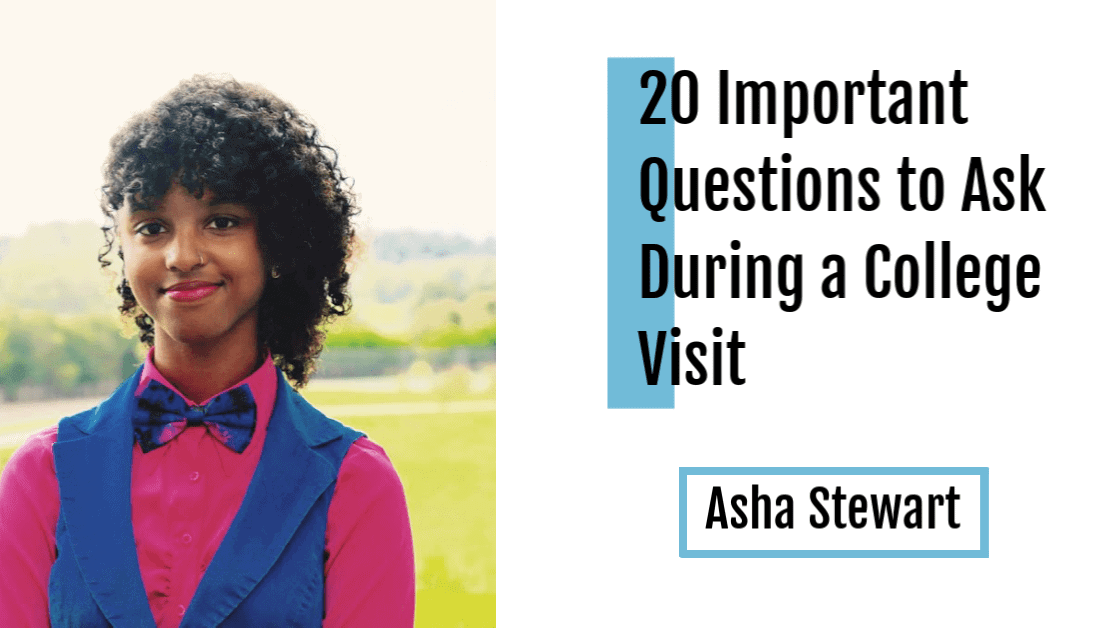
20 Important Questions to Ask During a College Visit
My visit to Sweet Briar during my senior year of high school consisted of me nervously following the student tour guide and my mother asking all the important questions I was too shy to ask. So when I became a student ambassador during the second semester of freshman year (after I had become more outgoing and less socially awkward), I decided to try my best to be an example of how college can help one get out of their shell. What I have learned in my time at college is that a big part of growing up is realizing that, just as you have to ask other people questions to receive information, you must also ask yourself questions to see how said information will affect you personally. The college experience is different for everyone, and there is no cookie-cutter list of questions that work for everyone. That’s why I believe it is important to use generic questions and then create an inner monologue with yourself to dive deeper into figuring out if a college is right for you.
1.) Why am I interested in this college?
This question is really just for you to answer. Think of the reasons you are visiting the campus and think of the research you may have done. This is a great question to ask yourself as you arrive on campus. Maybe even write down the answers and review them after the tour.
2.) What is the average class size?
Ask yourself how much this matters to you. Can you work fine in large seminars? Or do you like more individualized attention?
3.) What is the student-to-professor ratio?
Just as with the class size, think about how this may affect you. A smaller student-to-professor ratio often means professors can get to know their students more and offer more personalized help.
4.) What kind of programs are here for the majors? (internships, summer work, etc.)
If you are not sure which specific major you are interested in, that is perfectly fine! Think about 3 or 4 that you would like to know more about as well as what type of work the college provides so you can get more experience in these majors.
5.) May I speak with the professor in charge of the _______ major? (If you are interested in one)
If you do have a specific major in mind, that’s great! Speaking with the professor in charge of the department for that major can be really helpful in your decision process and can spark ideas on how to make the most of this education.
6.) What is the graduation rate?
This is a very important question. Obviously, everyone’s life journey is different. However, knowing the average graduation rate can show that the college is doing something (or many things) right (or wrong).
Student Life
7.) May I visit the offices? (Student Life, Study Abroad, Registrar, etc.)
These offices are in charge of making sure the gears of your college life keep turning without a hitch. Meeting some of the people in charge can give you a look into some of the individuals who will be working to insure you have a dorm to sleep in, classes to take, food to eat, and many activities and opportunities that can shape you into a well-rounded young adult.
8.) Can I see a dorm? (From my experience, tours usually include a dorm showing, but keep this question in mind in case your tour does not!)
This is a great way to really think about whether or not you want to live on campus. If you do want to live on campus, take a good look at the dorm and try to imagine yourself in a space like it.
9.) What are some typical on-campus jobs ?
Even if you were not thinking about getting a job on campus, or if you were thinking about finding a job off-campus, an on-campus job is a good way to get some pocket money while also learning to manage your time. In my experience, on-campus jobs take your class schedule into account so you are less likely to overwork yourself.
10.) What activities, on and off-campus, can I get involved in? (Other colleges may host things that students from your college can go to)
This is a great way to branch out and meet people who do not go to your college. Reflect on your interests. This is also a good way to get into community service!
11.) How is on-campus security, and how are emergencies handled?
If you see yourself working, living, being on the campus, it is always important to know the security of the campus.
12.) Is there transportation for students? (Especially important for those of us who do not have a car on campus!)
It can be a great experience to go on a Target run with fellow classmates or even have a ride to an event paid for by the college. Either way, it can cut down on gas costs if you do have a car and get you off campus more often if you do not!
13.) How accessible are study spaces? (Any 24-hour areas?)
The true college experience is having those times that an assignment requires a lot of your attention, you do not feel 100% ready before an exam, or you simply just procrastinated and, all of a sudden, it is one in the morning. Especially if you do not want to disturb your roommate or just cannot work in your dorm room, it is good to know that there are a variety of study spaces that are always open.
14.) How do I inquire about tutoring?
Often times, a student will realize that the same study practices they used in high school just do not work for college. Also, being in a different environment, living with a person you have never met, and being away from your family can lead to not-so-desired grades. Think about what type of courses you are interested in taking and what you have a history of struggling in. And remember: it is not a bad thing to seek tutoring. Asking for help when you need it is the best thing to do.
After Graduation
15.) What kinds of jobs do students go into after graduation?
Often times, when on a college tour, students have all their focus just on college. But it is very important to think about life after college and how well your school will prepare you for it.
16.) Do students usually get into a job related to what they studied?
Again, it is very easy to think only about college, but it is imperative to think about how you will be prepared to get into the field you are getting scholarships and paying money to get into. Of course, life can take people on many different paths than what they planned, but it is still a good idea to have a plan in the first place.
17.) How quickly do students find jobs after graduation?
This is an especially good question for those who have to take out loans. If the numbers reflect many students getting jobs soon after graduation, that means it is more likely that you will be able to do the same and get a headstart on paying off those loans.
18.) Are there resources on campus to help me find internships ?
Advisors can help steer you in the right direction for internships. Think about (and do research on) what type of internships can work with your major and what career you would like to go into. If you are not sure, think about what really interests you.
19.) Are there resources on campus to help with résumés and preparing for jobs?
An office with a person whose job it is to help you find jobs can make life much easier. Even better if the school hosts or can take you to events like résumé workshops.
20.) How prevalent is the alumni involvement?
This may not be important to many people, but for me, it solidified my college decision. I have found that if the people who graduated a college are passionate about it enough to come back and help students, then they most likely had a very good experience. Also, there is more of a feeling of community and knowing you are not completely alone.
Just remember that you are growing into an adult. As scary as that is, the journey can be made a little less frightening with the right support. And finding the right support for you often starts with asking questions!
Meet our Ambassadors!
If you are interested in getting involved in our Student Ambassador program, contact Erin Pettus at [email protected] .
Learn More About Sweet Briar College
Established in 1901, Sweet Briar is a private liberal arts and sciences college for women of consequence. The College’s unique community and campus life foster strength and resilience in every student by surrounding her with excellent faculty, coaches, and staff who challenge her to bring her best self forward—and to own it with confidence, courage, and grit. In 2018, U.S. News & World Report named Sweet Briar among the nation’s Most Innovative Schools.
Disclaimer : This article contains affiliate links to products and services. We may receive commissions for purchases made through these links.

Asha Stewart is a junior attending Sweet Briar College where they are double majoring in psychology and visual arts. Stewart is involved in the Bee Keeping club and G.L.O.W (Gay Lesbian Or Whatever). They work in Admissions as an Admissions Ambassador and is currently studying abroad in Paris for a semester.

How to Start Your College Search

The 30 Hardest Colleges to Get Into by Acceptance Rate

Your Guide to Required Documents for College Applications
Do you want scholarships and financial aid advice?
Unlock the path to your academic dreams – sign up now for NEW scholarships and timely financial aid advice and stay ahead in the pursuit of higher education!

Create an Account
Search for Colleges
- College match quiz
- Career matching assessment
- List building & collaboration
- College & event discovery
- Resume & activity organization
- Cost calculator
- Faster applications
- See all features →
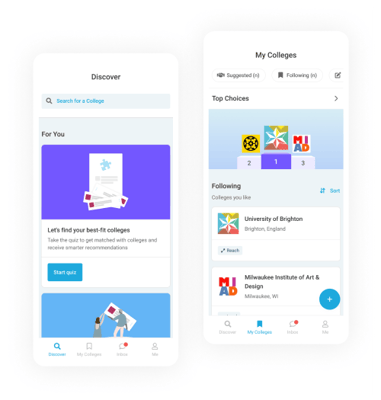
- Student progress tracker
- College search & suggestions
- List collaboration
- Direct messaging
Scoir is free for your students and for you. We also offer Advanced Solutions to help you better guide your students.
Access resources in the areas of test prep, essay support, and financial aid to better navigate every part of the admissions process.
- Student roster management
- College search
- Suggestions & matching framework
- Career assessments
- Communication & planner
- Student notes
- Supporter collaboration
College and academic advising resources to guide and inspire college counselors.
Book a Walkthrough
District Solutions
- Custom reports & dashboards
- Document sending
- College readiness curriculum
- Surveys & drive
- Task Management
We offer a flat 50% discount for each student who receives free or reduced lunch in your school or district.

Career development (certifications, courses & curriculum) for changemakers.
View Bonus Resources
Schedule a Consultation
Join a Demo
- Insights dashboard
- Premium Presence
- Student & guardian messaging
- Visit scheduling
- Event promotion
- Document acceptance
- Easy applications
Our pricing is fair for schools of all sizes, transparent, and rewards those schools expanding access to underserved students.
Check out content and practical guides to help inform your enrollment strategies and programs.
Going on a College Tour? Helpful Prep Tips + College Evaluation Form

With spring break just around the corner, now is a great time to start planning visits to colleges that you might be interested in attending. If you plan on taking a trip during your high school’s spring break, it’s best to go to the colleges’ websites and register for a campus tour sooner rather than later because these dates often fill up quickly. Since colleges’ spring breaks are often different than high schools’ breaks, most campuses will be bustling with activity. While visiting in the summer is better than not visiting at all, it’s always better to visit when you can experience a typical day on campus with the students there.
However, you don’t have to wait until spring break to start visiting college campuses. In fact, if you live within an hour or two of colleges, it’s best to start exploring locally over the next few weekends. If you are fortunate enough to be within driving distance or a train ride from different types of campuses, then take advantage of what is close to begin figuring out what type of college campus feels right for you . If possible, try to visit a campus in a city, one in the suburbs, and one in a rural community. In addition, it’s worthwhile to experience campuses with different size student bodies: a smaller college with under 5,000 students, a medium-size college with 5,000-15,000 students, and a large campus with over 15,000 students.
While you may not want to attend a college that is just down the street, these local schools can help you figure out what you like and dislike in a college. Then, you can start to narrow down your college search. As a result, when you decide to take longer trips to visit colleges, you can make the most of these opportunities.
Prior to any college visit, whether it’s local or far away, it’s best to do some research before attending. As mentioned, it’s highly recommended that you sign up for the official campus tour not only because you will get a more comprehensive idea of the college but also because it shows “demonstrated interest” in the college. With more students applying to more colleges than ever before, colleges are looking for ways to determine which students are more likely to accept their offer of admission. In fact, for the high school class of 2018, many colleges, such as Florida State University , Dartmouth College , University of North Carolina , and Bowdoin College , have reported that the number of applications has exceeded any previous year. It appears that all types of colleges - large state schools, Ivy League schools, and small liberal arts colleges - are inundated with applications. By showing demonstrated interest in a college, they just might feel better about admitting you.
However, if you cannot visit for financial reasons, you should contact the colleges to which you are applying to let them know about your situation and to find out if they have any opportunities, such as a “Fly-In” Program , that will either help to offset the cost or completely cover all expenses for your visit. In addition, some colleges offer special programs over specific weekends. For example, Carnegie Mellon University may cover up to $600.00 of travel expenses for students to attend one of its Celebration of Diversity Weekends :
"Celebration of Diversity Weekends are an opportunity to experience the diverse community, academic, extracurricular and cultural facets of both the campus and Pittsburgh. On Saturday evening, you’ll be matched with a current student who will be your Overnight Ambassador during your stay... Travel assistance may be available for students with financial need who have at least a 3.3 GPA on an unweighted 4.0 scale and a combined SAT score of 1270 or ACT score of 27. We give preference to students who are able to attend the weekend in its entirety."
College Greenlight keeps an updated list of colleges that offer these types of programs. However, it’s important to note that you must apply to most of these programs as early as the summer before senior year. Therefore, it’s a great idea to start researching them now.
What Should I Do To Prepare for My College Tour?
After you have scheduled an official tour, it’s a good idea to start investigating your options.
- Virtual Tour: Take an online virtual tour, if available on the college’s website, to get a good feel for the campus and what you might like to visit.
- Go to a Class / Meet a Professor: Contact admissions to see if you are able to sit in on a class and/or meet with a professor. If they allow prospective students to do so, then research a professor and request to sit in on a specific class that interests you. Prepare questions that you would like to ask the professor. Some colleges, such as Elon University , have a link on their admissions website to sign up to attend a class.
- Majors / Programs: If you have a specific major or program that you are interested in, make sure they are being offered at the schools that you are touring. If they do, then take the time to read about them and find the buildings on a map so that you can easily locate them once on campus.
- Services / Resources: Research the types of services that the college offers. Our “College Search Guide for Students with Learning Disabilities and Attention Disorders” will provide you with information to consider before and during your time on campus. Most of these services, such as the writing center and peer tutoring, are available to all students.
- Overnight Opportunities: Some colleges offer prospective students the opportunity to stay with a current student either overnight or for a weekend in order to have a deeper understanding of the college culture. For some of these colleges, this opportunity may only be available to high school seniors who have already been accepted.
- Schedule an Interview with Admissions: Reach out to the admissions office to see if there is the opportunity to do an interview while on campus. If given the opportunity, prepare ahead of time! Spend the time to thoroughly research the college, including the program of studies, majors, professors, and extracurricular activities.
- Campus Events: Research what campus events might be taking place the day that you are visiting. It could be something small, such as a visiting author, to something large, such as a sports game.
What Should I Do While on Campus?
Either before or after the official tour, take some time to explore on your own. Below are some suggestions of things to do while on campus to get a good feel for the environment.
- Find the building which houses your major and walk through it.
- Eat in one of the dining halls.
- If given the opportunity, ask a few students how they feel about the college, maybe something as simple as “What are your favorite and least favorite things about this school?”
- Attend an event on campus. If you haven’t researched prior to coming, ask the admissions office if they know of any events happening on campus.
- If there is a downtown area, go out to dinner locally to get a sense of the surrounding community.
- Pick up the campus newspaper to read it on your car ride home.
- Collect the names and email addresses of any staff or faculty member who took the time to talk with you.
- Be sure to take pictures while on the tour - they will be super helpful when thinking back and comparing schools later!
What Should I Do After the Tour?
When you get back into your car, take a few minutes to debrief. Y ou can print out this college evaluation form (shown below) to take notes, use the notes app on your phone, or write in a journal. Whatever method you decide to use, it is important to spend 15-30 minutes evaluating your impressions after touring a campus. If not, all of the tours will eventually blend together, and you will have a hard time remembering the specifics of what you liked and disliked about each college.
DORMS: ☆☆☆☆☆ (Overall Rating)
Things to Consider:
What did you think of the size of the rooms? How are the other amenities? What did you think about the bathrooms? Size? Location? Is there a common area? Study area? Do all freshman live together or near each other?
Your Notes/Thoughts About the Dorms:

FOOD: ☆☆☆☆☆
How many cafeterias/food spots are there are campus? How was the quality of the food? If you have any specific allergies or food requirements, can they accommodate you? Details about meal plans.
Your Notes/Thoughts About the Food:
STUDENT BODY: ☆☆☆☆☆
If you spoke with anyone, what were their thoughts? Could you see yourself with the students? Did you get a sense of school spirit and pride?
Your Notes/Thoughts About the Student Body:
CLASSES/PROFESSORS: ☆☆☆☆☆
If you were able to sit in on a class, was it as you expected? Better? Worse? How engaged were the students? How did the classroom look and feel? If you were able to speak with the professor, what did you discuss?
Your Notes/Thoughts About the Classes/Professors:
EXTRACURRICULAR ACTIVITIES: ☆☆☆☆☆
Did you learn about any clubs or activities that might interest you? Did you notice any signs on bulletin boards with interesting events? Were you able to attend a sports game? How active was the student body?
Your Notes/Thoughts About the Extracurricular Activites:

CAMPUS: ☆☆☆☆☆
Did it feel too small? Too big? Just right? Did you like the style of architecture? Why or why not? What transportation services are available? Did the campus feel safe? Are classes within a major located in a specific area?
Your Notes/Thoughts About the CAMPUS:

After you have written down your thoughts, take a few minutes to send emails to the faculty and staff who you’ve spoken to. Then, when you return home, it’s a good idea to send them a handwritten thank you note as well and include specific things you spoke about or specific topics from the class that you found interesting. In addition, do not judge an entire college on the tourguide alone. Often times, students will not like a college because they didn’t like the tour guide. Remember the tour guide is one person out of thousands on the campus. Instead of focusing on that person, use the time on campus to evaluate all aspects of the college.
Finally, once you have been accepted into college, it’s a great idea to visit the ones that you are considering attending in order to have a final look before deciding. In fact, some colleges have programs specifically designed for prospective students to attend once they have been admitted, such as the the Candidates Day at Villanova University or the Admitted Student Day at the University of Colorado. During these final visits, be as detailed and thorough in your evaluation of the schools as possible. Since you have already visited each of them, reread your notes and spend some time thinking about what you would like to see again or learn more about while on your last visit before making a decision. Now, you are in the driver’s seat and have all of the control. Take this opportunity to make the best decision for you!

How to Build Meaningful Connections with Students on Scoir
Imagine being a high school student right now.

The Cost of Traditional Student Recruitment
When my great aunt was 18 years old, living on the family farm, and attending a small schoolhouse in rural western Pennsylvania, a representative...

Key Themes from the 2020-2021 Recruitment Cycle
This article is based on a series of conversations we had with Scoir Partner Colleges in 2021. While this content is specific to recruitment themes...

College tour season is about to kick off. Here are 10 tips from college tour guides to have a successful campus visit.
- As spring starts, colleges around the country welcome parents and students to campus for tours.
- College tour guides want people to arrive on time, ask the right questions, and have fun.
- They also recommend students take the tour on their own, without their parents.
Spring break is right around the corner, and for many high school students and their parents, that means many will be hitting the road to tour colleges around the country.
To make the most of your visit, Business Insider spoke with college students and tour guides. They know the campuses like the back of their hands, and they know how to walk backward.
Here are the dos and don'ts of college tours from student guides.
1. Get there with no time to spare, but don't be late
You won't get points for arriving early, so try to arrive on time. But if you do happen to arrive late , there's no need to worry.
"If something comes up and you are late, ask your guide what you missed once the tour finishes," Skyler Kawecki-Muonio, a senior at Sarah Lawrence College, told BI. "They will happily fill you in."
2. Dress to impress, but don't sacrifice comfort
It's important to look nice, but you don't have to don a jacket and tie. Tour-goers should put their best foot forward with a sturdy pair of walking shoes , and don't forget to dress for the weather.
"At Fairleigh Dickinson, tours go out rain or shine, so make sure to wear clothes that will keep you warm," Emily Bone, class of '25, said.
3. Don't forget to sign in, but skip the CV
Most schools have a check-in desk where you'll receive a campus map and other literature. But don't bother furnishing schools with your portfolio.
"Students can leave their resumes at home," Henry Millar, a senior at William & Mary, said. "Tour guides generally do not have any sway in the admissions process whatsoever, so feel free to save the paper."
4. Pay attention on the tour, but do it solo if possible
Some schools offer the option of letting parents and kids take separate tours, which has advantages.
"Get excited about your child's potential future in college, but give them some space to see what they think of that school on their own," Nathan Weisbrod, a junior at Wesleyan University, told BI.
Students can comfortably ask questions without a parent present and compare notes afterward.
5. Ask all your questions, but avoid personal interrogations
This is the time to inquire about any aspect of campus life , and don't feel shy about speaking up.
"Tour guides love getting questions because it allows us to cater the tour, especially in small groups, toward the needs and interests of the families on that specific tour," Halle Spataro, class of '24 at Bucknell University, said.
But some topics are off-limits, so don't ask your tour guide about their SAT/ACT scores or what they wrote about in their essay.
6. Speak up, but let the student take the lead
Parents may be tempted to raise their hand again and again, but this tour is about the student, so there should be space to let them shine.
"Try to take the backseat — or the passenger seat — but refrain from driving all of your child's interactions," Julian Jacklin, class of '25 at Reed College, said. "Students who feel they can own that experience usually ask the most questions and engage with the tour more."
7. Say thanks, but don't leave with questions unanswered
Maybe your guide didn't hear you, or your kid was reluctant to speak up. You can still get the information you want before leaving.
"There's a lot of information students are getting that day and a lot of excitement with being in a new place, which can make people forget to ask certain questions," Lorenzo Mars, a junior at Pepperdine University, said.
Therefore, get your tour guide's email address so that you can follow up afterward.
8. You may know exactly what school is right, but keep an open mind
Don't be surprised if a city-living kid is suddenly intrigued by a small-town setting.
"The college search and college experience are all about getting to know yourself better and growing, so on a tour, students have to trust themselves and their judgment of the 'world' they've just stepped into," Thomas Elias, class of '24 at University of Scranton, said.
9. Take in as much as you can, but remember to have fun
Sure, preparing for the next four years can be scary and stressful. But it's also an exciting milestone, so enjoy the ride.
"These tours serve as great opportunities to learn more about colleges — along with their cities, culture, and people," Connor Gee, a sophomore at the University of Mississippi, said. "Have fun with it!"
10. Weigh the pros and cons of the school, but don't stop there
Your tour may be over, but you can still learn other ways to immerse yourself in college life .
"See if the school offers additional experiences, like eating in the cafeteria or attending a class," Emily Balda, class of '24 at Seton Hall University, said. "Consider it 'food for thought.'"
If you enjoyed this story, be sure to follow Business Insider on Microsoft Start.
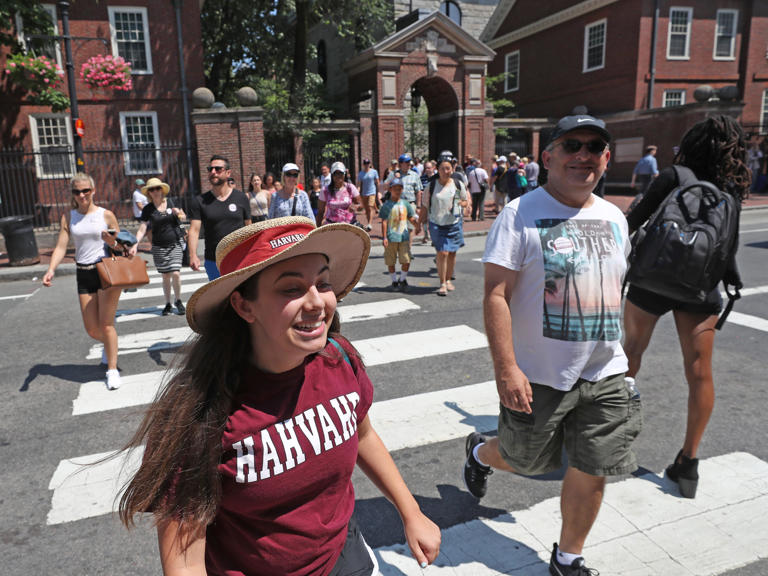

- Campus Culture
- High School
- Top Schools

College Tours 101: Everything You Need to Know
- application strategy
- college search
- college tour
- campus culture
- high school
- college admissions
With spring break and summer vacation on the horizon, it’s time to discuss when and how to plan a successful college tour.

What’s a College Tour? What’s the point?
Let’s start with the basics. The college tour is exactly what it sounds. It’s a tour of the colleges you’re interested in applying to and attending for 4 years. Depending on how much time and the budget you have, students will typically tour 7-10 schools over a one week period with their school or family.
The point of a college tour is for you to learn more about each school: the programs, the faculty, the student body, and so on. It’ll give you an opportunity to speak with the admissions office, as well as current students, to get answers to specific programs and also to just get a sense of what it feels to be a student there.
In short, the point of the college tour is to help you decide which schools to apply to.
Planning the College Tour: The List
To do the college tour, you’ll need a list of colleges. So, how do you come up with this list? Start with looking at a list of physical attributes of a college:
Enrollment Size: Do you care how big your graduating class will be? Small (~1,000), Medium (~5,000), Large (10,000+)?
Location: Does the geographical location matter to you? Just east coast? Or are you willing to consider schools in the Midwest? Do you want to be close to home?
Weather: Do you mind the cold? Do you want to experience the four seasons? Or do you want beautiful weather all year round?
Greek Life: Want to see what Greek Row is like? Is it integral to your college experience?
College Sports: Do you want to go to a college with competitive sports? Ohio State for Football, or Duke for Basketball?
Campus Setting: How vibrant do you want your off-campus environment to be? Think urban, suburban, or rural.
Campus Size: Do you want a campus? Do you want to be able to walk across across easily to get to class? Do you mind needing a car or campus shuttle to get to class?
Since you’ll be physically visiting these colleges, it’s a great opportunity for you to find out how much you care about these factors. Are there are any that you have a strong opinion about? Let me give you two examples:
Example 1: I want to go to school on the east coast. I don’t care about college sports. I think I prefer to have a campus. The rest I’m not too sure about.
Georgetown University
Johns Hopkins University
University of Maryland
University of Virginia
Amherst College
Boston University
Boston College
For students similar to example 1, this is a list I’d recommend to help them narrow down their college list. Of course, keep in mind there’s a lot of other factors to consider when choosing a college , but here’s what’s interesting about this list and helpful when it comes to a college tour.
DC vs. Baltimore: Georgetown and Johns Hopkins are relatively about the same size and are both urban universities. The main difference is the city it’s in, which of course adds to the culture it embodies. You might not realize it yet, but the city you’re in or neighboring might also have an influence on your choice.
State schools: UMD and UVA are both in college towns, which have their charms. You’re able to juxtapose that with bigger cities Georgetown and JHU are in, as well as how comfortable you are with the size of a school.
Enrollment Size: Boston College and Boston University are both in Boston. Main difference is their size. While Boston University is bigger than Boston College, it’s also much smaller in comparison to UMD and UVA. Seeing all the different sizes will help you figure out which one fits you best.
Urban vs. Rural: Once you’ve visited the schools in Boston, make your way to Amherst. Are you excited to leave the city behind? Or does it give you anxiety?
Example 2: I think I’m interested in a small-medium college, definitely with a campus. I’d like to go to school on the coasts, but not sure about campus setting or size.
Pomona College
Occidental College
University of Southern California
Pepperdine University
Northeastern University
Babson College
Brown University
Wesleyan University
If you already have a few requirements, then start from there! Similar to example 1, choose schools that already match your requirements but are different in areas you’re still not too sure about.
West Coast Schools
Start with the Claremont Colleges: There are 5 colleges you can explore: Claremont McKenna, Pomona, Harvey Mudd, Scripps and Pitzer. You don’t have to go to the information session for all 5 colleges, but walk around and see what the Claremont Colleges offer. They are all right next to each other!
Campus Size: Both Occidental College and USC are both in Los Angeles. USC is closer to downtown and is much bigger than Occidental. Since they are in the same area, it’s a great way to compare the two and see which one you’d prefer.
Oceanside: The perks of going to college by the coast is your access to the water. Of course, the weather on the west coast will be far superior, and can certainly be part of the consideration. Visit Pepperdine in Malibu! It’s close enough to LA to give you the city life that you may want, but can also give you immediate beach access whenever you want.
East Coast Schools
City vs. Suburb: Visit Northeastern and Babson to get the comparison. Northeastern has a campus of its own in the city of Boston, while Babson is a 30-40 minute car ride from Boston. Babson is located in the suburbs and doesn’t offer the same hustle and bustle that Northeastern does by being in the city. See which one is for you!
Providence vs. Middletown: Now we’re getting further away from the big metropolitan cities and moving towards smaller cities. They might all be the same to you, but the differences might also be not as appealing.
These two examples and the corresponding college lists help you visualize and understand what you should be looking for and comparing when you go on your college tour. Pick schools that are different in areas you’re not sure about and it will help you decide how important they are to you. Again, don’t just look at the physical attributes of a college! There are also many other factors that you should also be thinking about that’ll help you narrow down the list .
Map Your College Tour Route
Once you have a tentative list of schools you want to visit, map your route. It’s probably the most cost efficient to do a college tour road trip, especially if your the colleges you’re visiting are all in the same general area.
If there are a few that are out of the way, consider dropping them from your college tour list. Is there already a similar school on your list? Be judicious about the which schools you visit. Unfortunately, you are unlikely to have the time to visit all the schools you want to go to. Having said that, remember, trust your gut! If your top choice is a little out of the way, insist and go visit. You can always switch some of the other schools on your college list around to fit it in.
Do Your Research & Schedule Campus Tours
Again, this is about how to make this a successful college tour. Don’t turn up to one to your college visit without doing any research. This is your chance to go check out the departments you’re interested in and visit parts of the campus you’ve heard about.
As you’re doing your research, register for your campus tour and information sessions. It’s definitely helpful to have a guide to show you around. It’s also an opportunity for you to ask questions you can’t find answers to online.
The college tour is usually really tightly scheduled. As much as you try to stick to your schedule, it may not work out as you planned and that’s okay! Once you’ve made it on campus, you can always grab a campus map from the admissions office and learn about the school on your own. The admissions office will also be happy to answer any questions.
How do I “know”?
It’s difficult to explain in words, but there will be colleges you visit you feel really strongly about. Call it a gut feeling where you’re like “I can definitely see myself being a student here”, or simply “it feels like home”. That’s the magic of visiting college campuses. Of course, this happens as you are absorbing information about the school, so the more you hear that align with you priorities, the more excited you’ll get.
Similarly, you might get the “I never went to go here” feeling. Don’t discount that. Even if all of your other priorities check off, there’s something about the school or campus that didn’t feel right to you. Stick to your gut and what it tells you.
Our premium plans offer different levels of profile access and data insights that can help you get into your dream school. Unlock any of our packages or search our undergraduate profile database to find specific profiles that can help you make an informed choice about where to apply! We have 60,000+ successful college application files uploaded by college students. See how they got in, and how you can too!
About The Author

Frances was born in Hong Kong and received her bachelor’s degree from Georgetown University. She loves super sad drama television, cooking, and reading. Her favorite person on Earth isn’t actually a member of the AdmitSee team - it’s her dog Cooper.
Browse Successful Application Files

Last week, Prompt's CEO shared what mistakes to avoid in your college essay. In Part 2 of this two-part blog series, learn how to pick an essay topic. The key: focus on an admissions officer’s...

With an otherwise great college application, how important can college essays really be? When only 1 in 5 students applying to selective colleges have compelling essays, make sure you avoid this essay mistake....

In this second part of his two-part series, college admissions coach Justin Taylor explains key admissions lessons from 2020, an unprecedented year of firsts, that can help you strategize as we enter into this next application...

In Part one of this two-part series, college admissions coach Justin Taylor explains key lessons about 2020, “a year like no other,” that could seriously boost your chances in 2021, including smarter list building and transcript GPA...

We are so excited to announce that for this year’s scholarship, we selected five scholarship winners to maximize the impact of our $5,000 college scholarship prize money....

- 1. Webinar Series: College Application Prep for High School Juniors
- 2. College Application Lessons from 2020-2021: Strategizing through Covid Changes (Part 2)
- 3. College Admissions Lessons from 2020-2021: Strategizing through Covid Changes (Part 1)

- 5. COVID-19 and Your College Essay: Should You Write About It?
- 6. College Search: How to Find Your Best College Fit
- 7. College Tours 101: Everything You Need to Know
- 8. Waitlisted? 5 Ways to Move from the College Waitlist to Acceptance
- 9. When (and why) should you send additional materials to colleges you’re interested in?
- 10. How to Make Your College Essay Stand Out
- 1. How to Write College Essays to Boost your Chances Part 2: Focusing the Priority
- 2. How to Write College Essays to Boost your Chances Part 1: Biggest Essay Mistakes
- 3. College Application Lessons from 2020-2021: Strategizing through Covid Changes (Part 2)
- 5. Winners of the AdmitSee 2020 College Scholarship
- 6. COVID-19 and Your College Essay: Should You Write About It?
- 7. Education, Access and Systemic Racism
- 8. Applying to BS/MD Direct Medical Programs: Why Early Med School Admission Might be Right for You
- 9. How to Get Off the College Waitlist (5 Go-To Strategies)
- 10. College admissions prep during the Coronavirus


- CAMPUS LIFE
- Request Info
Tips for Taking a College Tour
- Campus Life
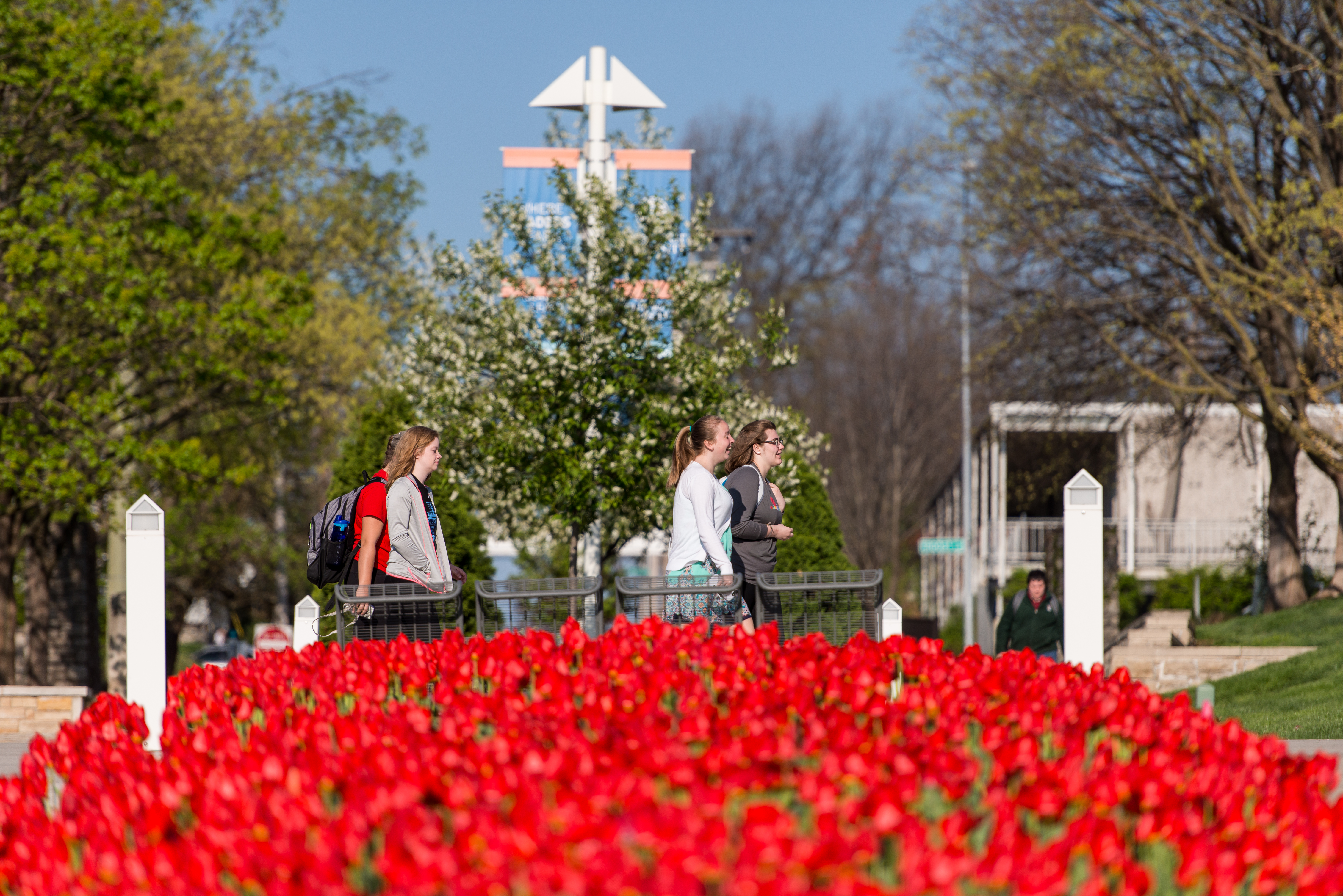
A college visit is perhaps the most anticipated part of the college search and decision process. It’s one thing to know what a school offers academically, socially, or even with sports, but it’s tough to know the “vibe” through a website. Finding the right fit comes from a campus tour .
At Rockhurst, tours are available throughout the week and weekend. There are also several events set up to get a feel of what it’s like on campus. If you’re on a busy schedule – no problem! Just come by campus, visit the Admissions office, and look around.
When Is the Best Time to Set Up Your College Visits?
There’s really not a bad time for a college visit as students will schedule their visits at various times in their high school career. Some end up scheduling a tour just weeks before classes begin, others begin as sophomores in high school. The ideal time is in or before a high school student’s junior year, either in the summer or over winter or spring break so the process of adding to a college comparison worksheet can start early and narrowing choices can begin in the fall of their senior year.
At Rockhurst, the leaves are changing in late October into mid-November, and the famous tulips are blooming in early to mid-April. Those are two highlights on campus to see.
How to Schedule a College Visit at Rockhurst
There are a few types of tours at RU, so choose what fits you. You will be accompanied by a student ambassador as a campus tour guide who will show you around and answer any questions you may have (Tip: Ask a lot of questions!).
Choose the option below that best fits your interests:
- Schedule a personal tour
- Schedule a group visit (Limited during Covid)
- Attend an open house
- Campus tour virtual
- Personal virtual meetings (Choose RU Faculty, Talk with a Current Hawk, or Admissions Counselor)
- Admissions event calendar
On your own? Use our Troost campus map to find your way around. There are also maps posted around campus.
Our Westport campus, Saint Luke’s™ College of Health Sciences , is an 8-minute drive away.
What to See at Rockhurst
There’s lots to take in, but here are just a few of the campus highlights:
1. Stroll across the Quad
Rockhurst has 529 trees across 55 acres on its Troost campus , but there’s no place like standing in the grass in the middle of the Quad looking up at the trees that have been there from the beginning of the college. Note: Watch out for squirrels dropping acorns, dogs running laps, footballs and yoga classes.
2. Step inside Masin-Halpin Fieldhouse
The home of Rockhurst basketball and volleyball , Masin-Halpin Fieldhouse is a throwback to an old-school college gym. The atmosphere is loud and electric on game nights and players feel like the crowd is on top of them. Fun Fact: RU’s Fieldhouse was a finalist to be used for the movie Hoosiers .
3. Instagram pics in the Big Blue Chair
Just outside Xavier-Loyola (“X-L”) Hall and across from the tennis courts is the big blue chair. The oversized Adirondack chair is there for photos or you and 62 of your closest friends to relax in.
4. Meet Iggy
Right off the Quad is “Iggy,” or the statue of St. Ignatius of Loyola. In the spring, he’s surrounded by some of the 33,000-plus tulips blooming on campus. Sit, relax and reflect as you listen to the waterfall beside him.
5. Find the Secret Garden
Tucked away behind Van Ackeran Hall, the Greenlease Gallery, and Sedgwick Hall is “The Secret Garden.” Sit, sun, study, or swing in the hammocks nearby.
How Long are College Tours?
Individual and group tours typically take about an hour. Be sure to schedule some time around the tour to visit areas you may want to see again.
What to Wear to a College Tour
Wear something comfortable as you’ll be doing a lot of walking and climbing some stairs, though elevators are available. If you’re in need of some Rockhurst swag, grab some at the campus bookstore in the basement of Massman next to the Rock Room.
What to Bring on a College Visit
The first things to bring on a college visit are an open mind and as many questions as you can think of. First, there are countless stories of students visiting a college with ideas of what it will be like, only to realize there’s so much to learn about the school it may steer your decision in a new direction. Second, have a list of places and/or people you want to see on campus, and any/all questions ready for the student ambassador or Admissions folks you’ll meet with.
One more thing: Take as many photos and videos as you’d like in order to reference later.
Questions to Ask at a College Interview
As was mentioned earlier, you can learn a lot from a website, but there are some things you can only find out in person. In addition to questions about academic opportunities, dorm life and organizational involvement, have some questions ready for your student ambassador to find out about the everyday life of a student. Where do you hang out? How’s the food? What do you like to do in Kansas City? Is there a Target nearby? Why did you choose Rockhurst? What makes it unique? Where do you study? What are your favorite parts of college life here? How often do you talk to your professors? How can I get involved and how soon? What is the tuition? Where will I live my freshmen year? Do you have a _______ degree? Do you offer student masses? What student organizations do you have?
Now you're ready. We're looking forward to meeting you!
Schedule a Campus Visit
Admissions Advice


Finance Questions to Ask on a College Visit
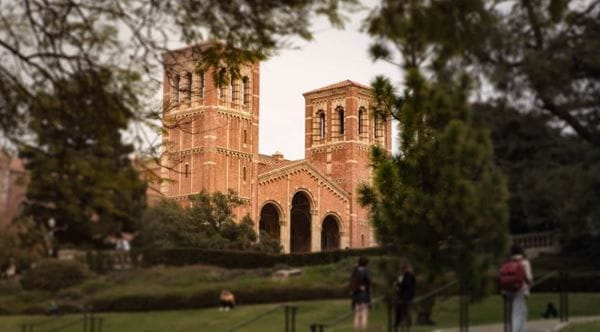
Written by Jan Combs on February 8th, 2022
- college visits ,
- financial aid ,
- scholarships ,
- What forms are required to apply for financial aid?
- Do you get extra money for completing the financial aid forms before the published deadline?
- Is your Net Price Calculator accurate? Do you also have a scholarship calculator?
- Next year my sibling will also be in college. Will I get more financial aid when we are both in college?
- I have read that there are going to be changes in the federal financial aid formula . Can you explain how this will impact financial aid at your school?
- Are there other ways of paying for college beyond financial aid and loans?
- Can we pay the school monthly instead of borrowing loans?
- Are scholarship and financial aid awards sent out at the same time as the acceptance letters?
- Do costs, such as tuition, go up every year? If so, does financial aid also increase each year?
- If I decide to join a fraternity or a sorority, are there costs associated with that?
- If I study abroad, can I use my financial aid to pay for it?
- Is it less expensive to live off campus, or are the dorms less expensive?
- Do Early Decision candidates receive the same amount of merit aid as Regular Admission candidates?
- Do I have to apply separately for each scholarship or just submit one application?
- Do you offer scholarships based on my major of choice?
- What types of on-campus jobs are available to first-year students? Are all students able to work on campus?
- Are there any paid internships available? Do companies come to campus to recruit?
- If we do need to borrow, how do we find the right loan program?
Meet our team of college finance experts, former financial aid officers who know the ins and outs of college financing.

amet, adipisicing elit sed do eiusmod tempor incididunt?
Follow these pre-application steps to help your student stay on track for admissions success., related resources.

Read | Posted on March 19th, 2024
Education Tax Credits: What Are They and How do I Use Them?
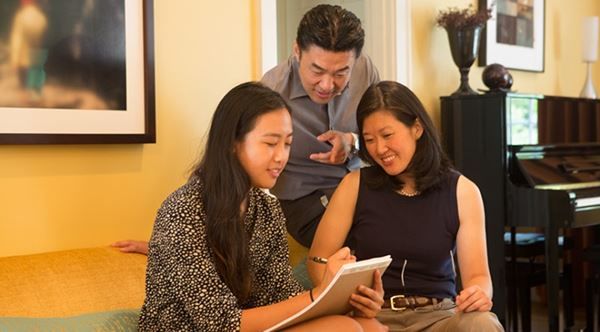
Read | Posted on March 8th, 2024
Asking Prospective Colleges for More Merit Aid

Read | Posted on December 21st, 2023
What is Secure Act 2.0?
Browse categories.
- Applying For Financial Aid
- Choosing The Right College
- College Admissions Consulting
- College Applications
- College Coach Mentionables: News & Events
- College Entrance Exams
- College Essays
- College Loan Advice
- College Visits
- Finding Scholarships
- How To Pay For College
- Meet a College Finance Expert
- Meet An Admissions Counselor
- Uncategorized
Interested?
Call 877-402-6224 or complete the form for information on getting your student started with one of our experts.

- Skip to Primary Navigation
- Skip to Main Content
Quicklinks & Search
Access classroom materials
Web portal to Texas A&M Services
Access your student email
Access the faculty & staff portal
Human resources portal
Popular Searches
- Where is Texas A&M University?
- What are the Aggie war hymn lyrics?
- What is the 12th Man?

- How to Apply
- Make a Gift
- Visit Texas A&M
Discover who we are at Texas A&M University and learn what it means to be an Aggie.
We strive to carry out our university’s mission and live by six core values.
We’ve compiled important facts and statistics about Texas A&M.
Our president and governing bodies guide our university.
We remember Texas A&M’s roots and celebrate its milestones.
We’ve gathered a list of common questions about Texas A&M.
Our traditions celebrate the Aggie Family, past and present.
- Rankings & Recognitions
- Global Engagement
- Campus Virtual Tour
Learn how to become the newest, loudest and proudest member of the Fightin’ Texas Aggies.
Learn how to apply as a first-time college student.
Learn how to apply as a student previously enrolled at another college.
Learn how to apply to our graduate and professional schools.
Learn how to apply if you are not a U.S. citizen.
We provided resources to help you understand Texas A&M’s costs and tuition.
Texas A&M offers a variety of financial aid, such as scholarships and grants.
- Applicant Information Portal
- Tuition Calculator
- Info for Admitted Students
Pursue your education as part of the Aggie Family. We have options for all interests, life phases and learning styles.
Texas A&M is home to 16 colleges and schools.
Our students have a vast selection of study areas to choose from.
We offer programs that enable students to learn around the world.
Texas A&M extends beyond College Station to locations across the globe.
We offer resources to ensure students’ academic success.
- Academic Calendar
- Honors Program
- University Libraries
- Course Catalogs
Make a difference at one of the nation’s leading research institutions.
Our research is making an impact around the globe.
Students have opportunities to be a part of life-changing research.
Our colleges and schools continuously work on field-specific research.
Researchers at Texas A&M collaborate to maximize their work’s impact.
Our equipment, labs and facilities enable groundbreaking research.
- Research @ Texas A&M
- Division of Research
- Council of Principal Investigators
- Research Compliance & Biosafety
- Find Funding
Discover what it’s like to live and learn in Aggieland. Our tight-knit community is rooted in tradition and service.
We have various options for parking and getting around campus.
Whether you plan to live on or off campus, we have resources for you.
Students have plenty of options for dining locations, menus and meal plans.
There is a lot to do and see in Bryan-College Station.
Students have many resources and ways to get plugged in.
We have resources and emergency services to keep students safe.
Texas A&M is rich in tradition that celebrates the Aggie Family, past and present.
- Aggie Culture
- Corps of Cadets
- Orientation
- Remembrance
Texas A&M University is the home of the 12th Man.
Texas A&M University athletics teams and programs.
Schedule of all Aggie games.
The official Texas A&M store for gifts, football gear, apparel and Aggie merchandise.
Donate to Texas A&M Athletics.
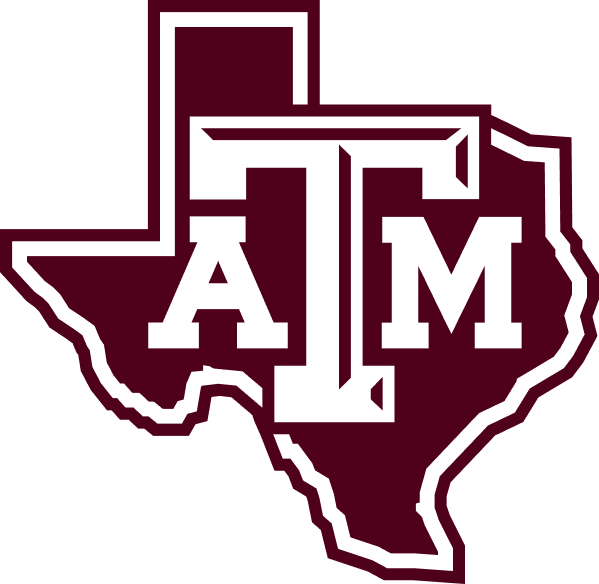
- Student and Employee Directory
- University Events Calendar
- University News
Texas A&M University is home of the 12th Man.

Plan your campus visit
The Appelt Aggieland Visitor Center is your hub for visiting Texas A&M University’s beautiful College Station campus. Our Howdy Crew provides on-campus guided tours to individuals and groups, and virtual, on-demand guided tours for individuals. These tours showcase Texas A&M’s unique, world-class resources.
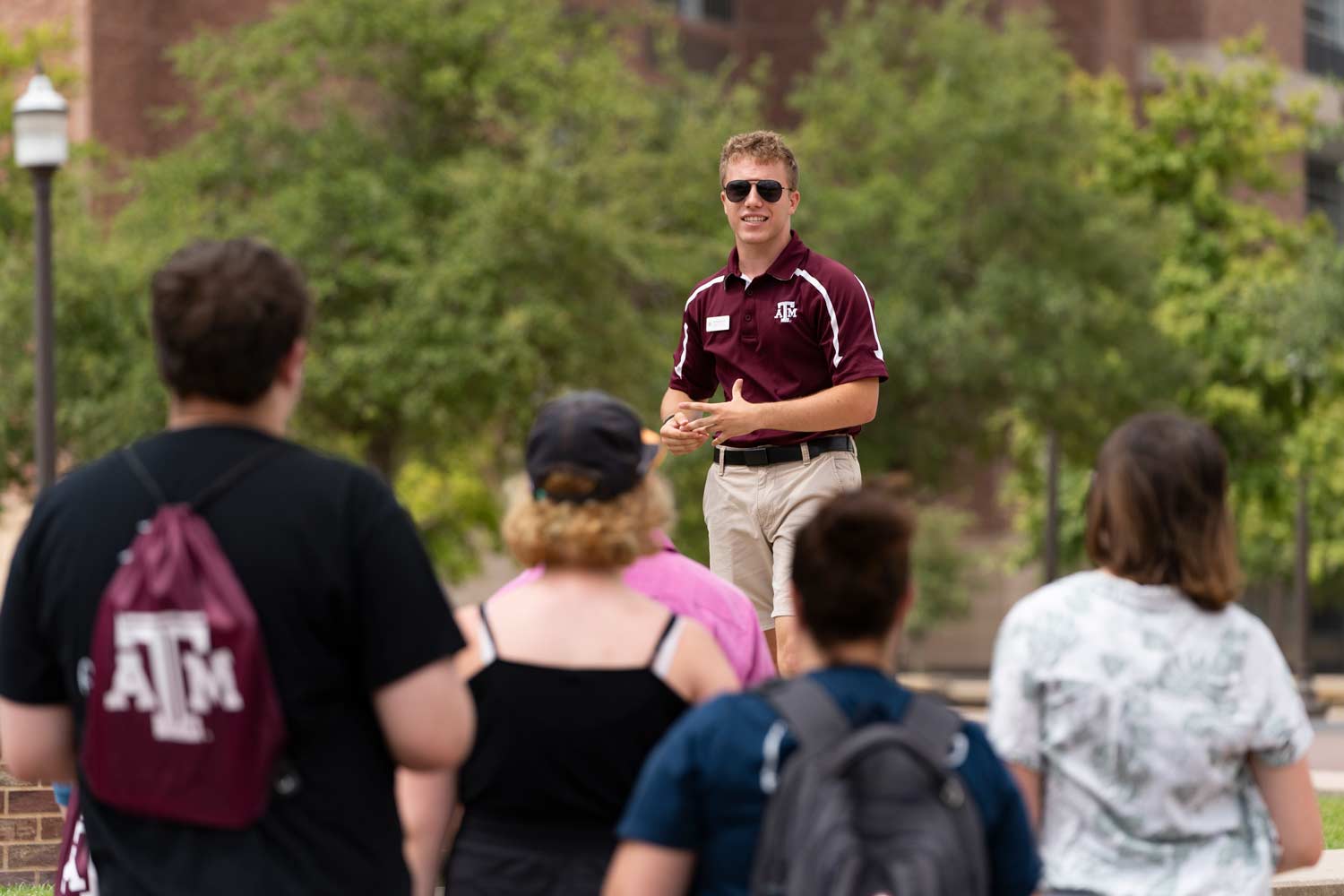
In-Person Campus Tours
Learn about everything Texas A&M has to offer during a tour while visiting campus in person. Our Howdy Crew tour guides will share information about Aggie traditions, academic resources, living and dining options and campus landmarks. Stops on the in-person tour include the Memorial Student Center, Academic Plaza, Aggie Park and the Interdisciplinary Life Sciences Building. We also welcome family members to explore campus and join in on tours.
Register online at least two weeks before your visit. If any accommodations are needed for visitors with disabilities, please let us know at that time. If you need to cancel or modify your visit, please email [email protected] .
You may also sign up for an admissions information session, residence hall tour, academic college overview or a visit with the Corps of Cadets.
Sign up for an in-person visit
Visit Campus with a Group
Tour groups can explore Texas A&M's academics, student life, history and application process during a 90-minute in-person tour. For group tours, you must have a minimum of 11 people and no more than 66, including chaperones.
In addition to our campus walking tour, groups may select an admissions information presentation or a tour of our residence halls, during available time slots.
Tours begin at the Visitor Center but may be canceled or moved due to inclement weather.
Sign up for a group tour
Planning Your Group Tour
Please arrive 15-30 minutes before your tour starts. If you will be late, call us at 979-845-5851 and we’ll do our best to work things out. Scheduled activities may be shortened or canceled for groups arriving more than 15 minutes late.
Students must be organized into groups with one chaperone for every 10 students prior to arrival. Chaperones must stay with the group at all times and are responsible for their group's behavior throughout the tour. If you have scheduled other activities on campus, such as dining or self-guided tours, please provide us with your itinerary. We want to help make sure your day runs smoothly.
Groups interested in eating on campus may contact Texas A&M Dining Services to arrange lunch at one of our on-campus dining facilities.
Tips for Your Campus Visit
Below are some suggestions for making your visit go smoothly:
- Plan ahead on how you'll get to College Station. Our campus is conveniently located within a three-hour drive of Houston, Dallas and Austin.
- Wear comfortable walking shoes and bring a bottle of water. We are proud of our big, beautiful campus, so tours are extensive.
- During warmer weather, apply sunscreen and bring an umbrella for shade. It's hot in Texas!
- Check current conditions and plan accordingly. Aggieland weather can change quickly.
- Prepare questions for our Howdy Crew tour leaders, who are well-versed in hot spots around campus and Bryan-College Station.
- Arrive 15-30 minutes before your tour starts. If you will be late, please call us at 979-845-5851. We'll do our best to work things out, and some events may have to be canceled or rescheduled.
Contact the Appelt Aggieland Visitor Center
Questions about your visit? Get in touch!
Call: 979-845-5851
Email: [email protected]
Visit: Texas A&M University, Rudder Tower, 401 Joe Routt Blvd., College Station, TX 77840
Hours: Monday-Friday, 8 a.m.-5 p.m.
Visitor Center Closures
Please note: Hours of operation for the visitor center and tour times are subject to change.
Ready to Learn More?
If you're interested in becoming an Aggie, we want to hear from you and help you explore your interests. Sign up to receive admissions details, important announcements and special event invitations, and to learn more about life as an Aggie.
- WordPress.org
- Documentation
- Learn WordPress
- Members Newsfeed
Questions to Ask During a College Tour
- Uncategorized
Congratulations, you are headed to college, and this weekend you will be attending your first college tour to decide what school you want to attend this fall. Your tour guide will probably tell you that you have a green light to ask whatever question you would like. That is nice of them, but they will likely spin negative aspects of campus life into minor inconveniences. If you want to get the inside scoop on what life is at the college, make sure you spend at least 30 minutes talking to students who will give you honest answers. And when you do, be sure to ask the questions below.
- Why did you choose this school?
- Do you like it here?
- What are your college’s strengths?
- What’s your biggest complaint about your college?
- What else could stand to be improved?
- How accessible are administrators, staff, and professors.?
- What majors are student favorites?
- What departments or programs have the best and worst reputations?
- What’s your favorite class?
- Are your professors good instructors?
- Do your professors hold office hours and are they helpful?
- Are most of your courses taught by teaching assistants?
- Can you gain admission into most of your first-choice courses?
- Are your courses lecture-based or discussion-focused?
- How much reading and writing is needed for an average course?
- How often are group assignments required?
- Are you happy with academic advising?
- Do students have access to any tutoring programs or writing centers?
- How big are your courses?
- Does your major require a capstone project?
- Are professors available for research with students?
- Is it popular to study abroad?
- What’s it like to be a student here?
- What’s an ordinary day like?
- How much time does the average spend studying per week?
- What do you do on the weekend?
- What do you when you are not in class?
- What social activities does your college host?
- What types of things are there to do in your college’s hometown?
- How’s the food?
- Do most students live on-campus?
- How are the dorms?
- Which clubs and student organizations are student favorites?
- Do lots of students belong to fraternal organizations?
- What’s your favorite place on your campus and why?
- Where do you like to study for exams?
- What are the campus facilities like?
- How many computer labs does the college have? Is that enough?
- How is the WiFi on campus?
- Is it easy to get around campus?
- Are sports popular?
- Is there a lot of college spirit?
- How would you describe your fellow students?
- Are the students here friendly?
- What makes the student body unique?
- Is there diversity on campus?
- Are there many students from other countries?
- Do students of different races and courses interact easily?
- Are students cliquish?
- Are internships available? How do you find them?
- Is Career Services helpful?
- Do you have a mentor?
- Does your college have a co-op program?
- Does your college provide opportunities to build leadership
- What options exist for service-learning?
- Do employers recruit students from your college?
- How hard is it to find summer jobs and other kinds of work through your school?
- Who are some of the famous alumni from your college?
- How active is your school’s alumni association on campus?
- What kinds of hands-on or experiences have you had in and outside of the classroom?
Related Articles

Introduction Educators around the world strive to find creative ways to introduce…

Introduction: Weather vanes are fascinating instruments that have been used for centuries…
Introduction As educators, it is our responsibility to inspire students to achieve…

Pedagogue is a social media network where educators can learn and grow. It's a safe space where they can share advice, strategies, tools, hacks, resources, etc., and work together to improve their teaching skills and the academic performance of the students in their charge.
If you want to collaborate with educators from around the globe, facilitate remote learning, etc., sign up for a free account today and start making connections.
Pedagogue is Free Now, and Free Forever!
- New? Start Here
- Frequently Asked Questions
- Privacy Policy
- Terms of Service
- Registration
Don't you have an account? Register Now! it's really simple and you can start enjoying all the benefits!
We just sent you an Email. Please Open it up to activate your account.
I allow this website to collect and store submitted data.

Wells College has announced a closure plan.

It is with profound sadness that we announce the forthcoming closure of our beloved Wells College at the end of this academic semester.
As trustees, we have a fiduciary responsibility to the institution; we have determined after a thorough review that the College does not have adequate financial resources to continue. As you may be aware, many small colleges like Wells have faced enormous financial challenges. These challenges have been exacerbated by a global pandemic, a shrinking pool of undergraduate students nationwide, inflationary pressures, and an overall negative sentiment towards higher education.
Members of the board, many of whom are Wells graduates, have spent years trying to find creative solutions to raise revenues in hopes of avoiding closure, including most recently having conversations with other academic partners. We acknowledge the work from all board members and college leaders, especially members of the Cabinet, our faculty, staff, and graduates on creating strategic plans, sponsoring aggressive fundraising campaigns, launching innovative new programs and managing our resources with care. Your efforts are appreciated more than you know. But revenues, unfortunately, are not projected to be sufficient for Wells’ long-term financial stability.
The Board is committed to the legacy and educational mission of Wells College. As such, we have entered into an agreement with Manhattanville University where it will become our legacy and teach-out partner. This partnership further will help ensure that Wells’ current students matriculate, and our institutional mission and legacy continue. Manhattanville is developing dedicated housing for Wells students and will be partners in supporting our students with transfer plans. Manhattanville has also expressed interest in developing a legacy agreement that would integrate the Wells College name and history into the Manhattanville community.
In the coming hours and days, you will have questions, some of which can be answered immediately. We have created a website which lists additional information. We will continue to update this website and communicate with our stakeholders as we finalize plans for the closure of Wells.
The Board thanks all of our alumnae/alumni and friends who have supported the institution since its founding in 1868. Your support and generosity have allowed Wells to continue its mission of helping students think critically, reason wisely and act humanely.
Marie Chapman Carroll, ‘75, Board Chair Jonathan Gibralter, President
News and Updates
Upcoming events.
This post will be updated continually. Ongoing Counseling Services Wells College has arranged for counselors to be available in the Community Medical Center beginning April 29. These individuals are prepared … Read more
Manhattanville University Named Teach-Out and Legacy Partner for Wells College
This partnership further ensures that the legacy and educational mission of Wells College will continue to thrive. This strategic partnership is aimed at fostering academic excellence and community spirit, as … Read more
Announcement of Closure
This is a difficult letter to write and an even more difficult letter to read and process. It is with profound sadness that we announce the forthcoming closure of our … Read more
Resources for the Community
Questions and answers.
Wells College faces significant financial challenges. We conducted a comprehensive review of the institution’s financial health and future sustainability, including an independent analysis, which has led to the necessary conclusion of closure. Many small colleges, like Wells, grapple with enormous financial challenges and the pandemic has exacerbated these issues. This includes a nationwide shrinking pool of undergraduate students, inflationary pressures and negative sentiments towards higher education.
The Board and college leadership have taken decisive actions to address the institution’s financial challenges. This includes creating and executing aggressive strategic plans with faculty, staff, and graduates; streamlining the academic programs; seeking donor support; selling non-essential properties; introducing new revenue-bearing options such as workforce and educational partnerships and online learning for graduates; and implementing new marketing and recruitment initiatives and strategies. While some of these initiatives had positive impacts, the sum of these efforts was insufficient to improve financial projections.
The College saw no likelihood of such significant fundraising goals being achieved year after year, nor the likelihood that new revenues could be identified in sufficient amounts and quickly enough to save the College. Fundraising helps to support the College, but the board recognizes that it cannot carry the College. Wells had already raised its fundraising goal for 2023-2024 above prior years’ achievements. These fundraising goals would have required more than double the goal to make possible, not certain, another year of operation. That doubled goal of approximately $12 million would have had to be sustained for several years unless other revenues could be identified.
The Board’s plan includes a continuing commitment from the Wells College Alumni Association (WCA). Key individuals from the board and the WCA will work together in the coming months to secure the legacy of Wells College and share those opportunities in the future. Wells has selected a legacy partner institution, which will honor and preserve the legacy of the College for years to come.
Determining the future of the college’s campus and other real estate is currently under consideration. The Board will collaborate with village, county, and state attorney general and relevant local associations to make informed decisions.
Wells has selected a legacy institution partner in Manhattanville University. This institution will plan to house various materials including transcripts, business records and other important artifacts.
The board and its advisors have been working diligently to understand all options. Once the board voted to close the College, it is our obligation to communicate with our community in a timely manner. Making the announcement when students are present gives us the best opportunity to provide counseling and support and to make services available in person. Each student will have personal advising to plan for their degree path and the College will communicate directly with students for those advising appointments.
The College will assist students in graduating or continuing their studies elsewhere and outline a clear pathway to earn their degrees. A formal institutional teach-out plan, required by accrediting bodies, will guide the closure to minimize its impact on students. Specific information will be shared with impacted members of our community this week.
Over the next several weeks and months, we will be working with employees to provide them with resources and support as they depart the institution.
We appreciate you reaching out to learn how to share your job openings with our staff. It’s wonderful to hear from the community and the willingness to assist. Wells College is partnering with the Department of Labor to host an on-site Job Fair on Wednesday, May 22. Employers and job placement agencies interested in attending to recruit faculty and staff should complete a registration form . Please email [email protected] for further questions. We appreciate your understanding as we work out these details. We also encourage you to reach out to our employees to share job opportunities. You’ll find the names, job titles, and emails of our employees within our campus directory.
The Wells in Florence program is going to be continued by our preferred legacy partner, Manhattanville University. Students who are currently enrolled or were planning to enroll in the program will receive specific follow up information.
College officials are working with the New York Attorney General to determine next steps for the property.
See all FAQs
Contact Wells College
Think critically, reason wisely, and act humanely..
Our mission since 1868.

IMAGES
VIDEO
COMMENTS
Here are 32 example questions, collected from college admissions and enrollment professions, that students don't always think to ask on college visits. These questions - edited for length or ...
Learn how to prepare for a college campus tour and what to ask during your visit. Find out what to do before, during, and after a campus tour, and get tips on student life, facilities, and services.
Housing and Food. What percent of students live on campus? What about upperclassmen? What types of dorms or housing options does the college provide? What percent of students have cars on campus? How much does it cost to have a car on campus? (Parking permits, etc.) What meal plans are available? What other food options are available on or near ...
1. 109. I loved it when families came for college tours. They were excited, happy and sometimes even nervous. However, some families weren't sure what questions to ask because everything (everything!) was new to them. I compiled a list of must-ask questions to ask on a college tour for admission counselors, financial aid professionals ...
The college arranges these tours and provides a structured campus exploration. Guided by current students or staff, they cover key aspects like the college's history, facilities, and academic opportunities. These tours often include talks from faculty and provide chances to ask questions, offering a comprehensive overview of the college.
This sample questionnaire contains questions to consider asking during your campus visit, arranged by topic and school representative. You will only need to ask some of these questions because everything depends on your unique needs and interests. But you may also need to ask additional questions that aren't covered here.
Seven Admissions Questions to Ask When You're on a Campus Visit. Don't let good information gathering opportunities slip through your fingers, especially on all-important college admissions queries. Be sure to ask these admissions questions during your next college visit, and pave the way for a smooth transition from high school life to ...
Here are a few pieces of advice to keep in mind when preparing for a visit to college campuses. Organize Your Questions. The first step in figuring out which questions to ask is to first discern the most important criteria you are looking for in a university or college.
I love it when families approached for college tours. They subsisted excited, happy and when even nervous. However, some families weren't sure what questions to ask as complete (everything!) were new to them. ... were new to them. I compiled a list of must-ask questions to ask on a graduate tour for inclusion advisers, financial aid ...
This brings me to the first, most important rule of college visits. Start with the book. Yes, the book. Although some folks skip over the paper step and simply start researching on the internet, I strongly believe an actual book is the first and best place to begin. Books are faster to use and better organized.
In addition to asking these questions of college tour guides and campus officials, Inzer encourages students to wander off the tour route to observe campus broadly. "You can learn a lot by trying to blend in and experience the place on your own, if you are comfortable doing so," Inzer wrote in an email. "It may not be scientific, but a ...
These questions allow students to hear a realistic perspective on the university and they give tour guides the chance to talk about how Tufts is working to be the best school that it can be. While these questions are a great place to start, just remember when you are on a college tour there are no wrong questions.
1. How Much Time Do You Spend Studying and Doing Homework? Emma B., a campus tour guide at Texas Christian University in Texas, says that while understanding how classes are taught is of course relevant, "the amount of work that you put into a class outside of a physical hour in a class is pretty important.".
2. Browse the bookstore. If you are the first child in your family to attend college, you should prepare to dissociate yourself from your parents upon entering the bookstore. As soon as mom or dad spies a price tag on a textbook, they may react with surprise, anger, disbelief, tears, or any combination of the above.
My visit to Sweet Briar during my senior year of high school consisted of me nervously following the student tour guide and my mother asking all the important questions I was too shy to ask. So when I became a student ambassador during the second semester of freshman year (after I had become more outgoing and less socially awkward), I decided to try my best to be an example of how college can ...
When you get back into your car, take a few minutes to debrief. You can print out this college evaluation form (shown below) to take notes, use the notes app on your phone, or write in a journal. Whatever method you decide to use, it is important to spend 15-30 minutes evaluating your impressions after touring a campus.
College tour guides want people to arrive on time, ask the right questions, and have fun. They also recommend students take the tour on their own, without their parents.
The college tour is exactly what it sounds. It's a tour of the colleges you're interested in applying to and attending for 4 years. Depending on how much time and the budget you have, students will typically tour 7-10 schools over a one week period with their school or family. The point of a college tour is for you to learn more about each ...
How to Schedule a College Visit at Rockhurst. There are a few types of tours at RU, so choose what fits you. You will be accompanied by a student ambassador as a campus tour guide who will show you around and answer any questions you may have (Tip: Ask a lot of questions!). Choose the option below that best fits your interests: Schedule a ...
Finance Questions to Ask on a College Visit. Written by Jan Combs on February 8th, 2022. I came to College Coach with nearly 30 years of related professional experiences. As a director of financial aid at the Harvard Graduate School of Education, I determined student financial aid eligibility, oversaw a number of scholarship and fellowship ...
Prepare questions for our Howdy Crew tour leaders, who are well-versed in hot spots around campus and Bryan-College Station. Arrive 15-30 minutes before your tour starts. If you will be late, please call us at 979-845-5851.
Questions to Ask During a College Tour. Home / Uncategorized. Uncategorized. by Matthew Lynch - May 6, 2024. Congratulations, you are headed to college, and this weekend you will be attending your first college tour to decide what school you want to attend this fall. Your tour guide will probably tell you that you have a green light to ask ...
College Board provides a variety of tools and resources to help educators prepare for test day and analyze results. Assessment Reporting for K-12 Educators View and analyze student scores for the entire SAT Suite. Sign In School Code Search Search for K-12 school codes, also known as College Entrance Examination Board (CEEB) codes. ...
Wells College is partnering with the Department of Labor to host an on-site Job Fair on Wednesday, May 22. Employers and job placement agencies interested in attending to recruit faculty and staff should complete a registration form. Please email [email protected] for further questions. We appreciate your understanding as we work out these details.